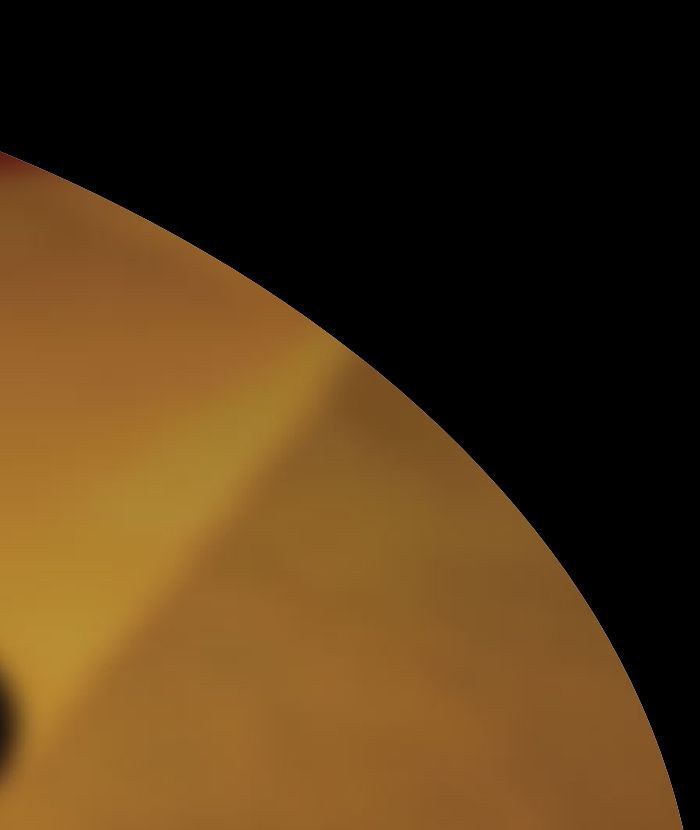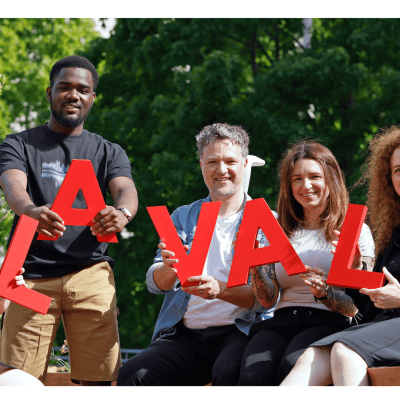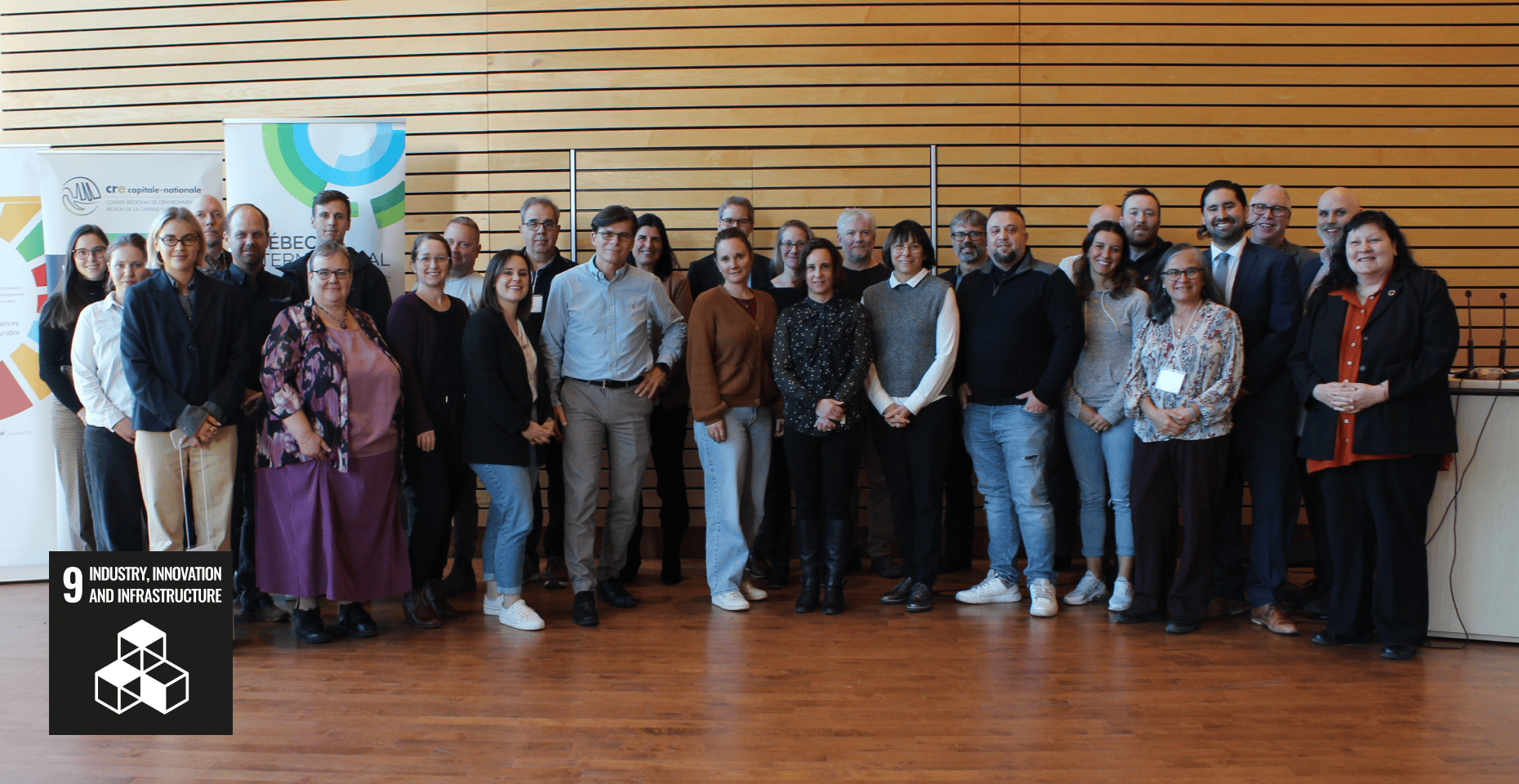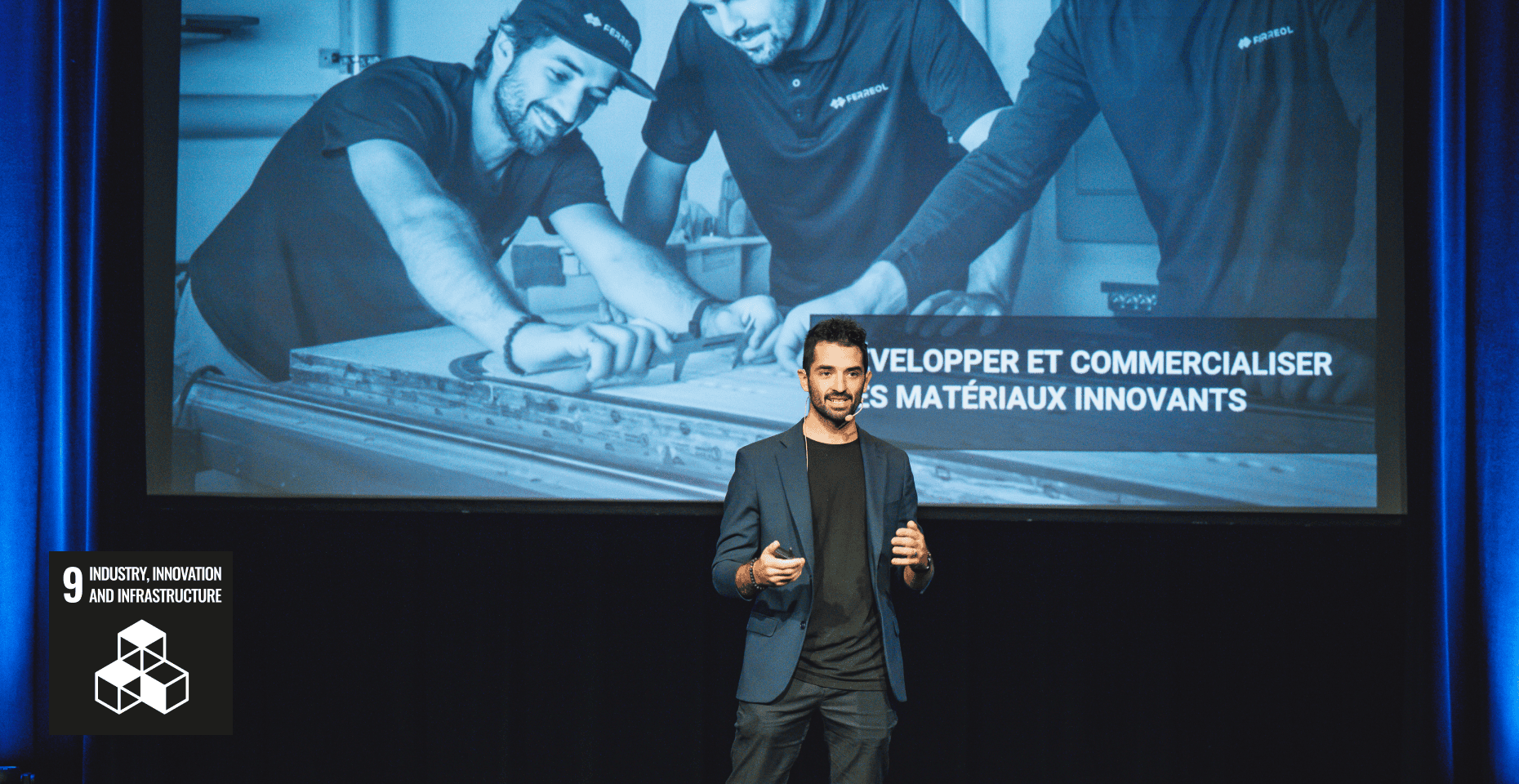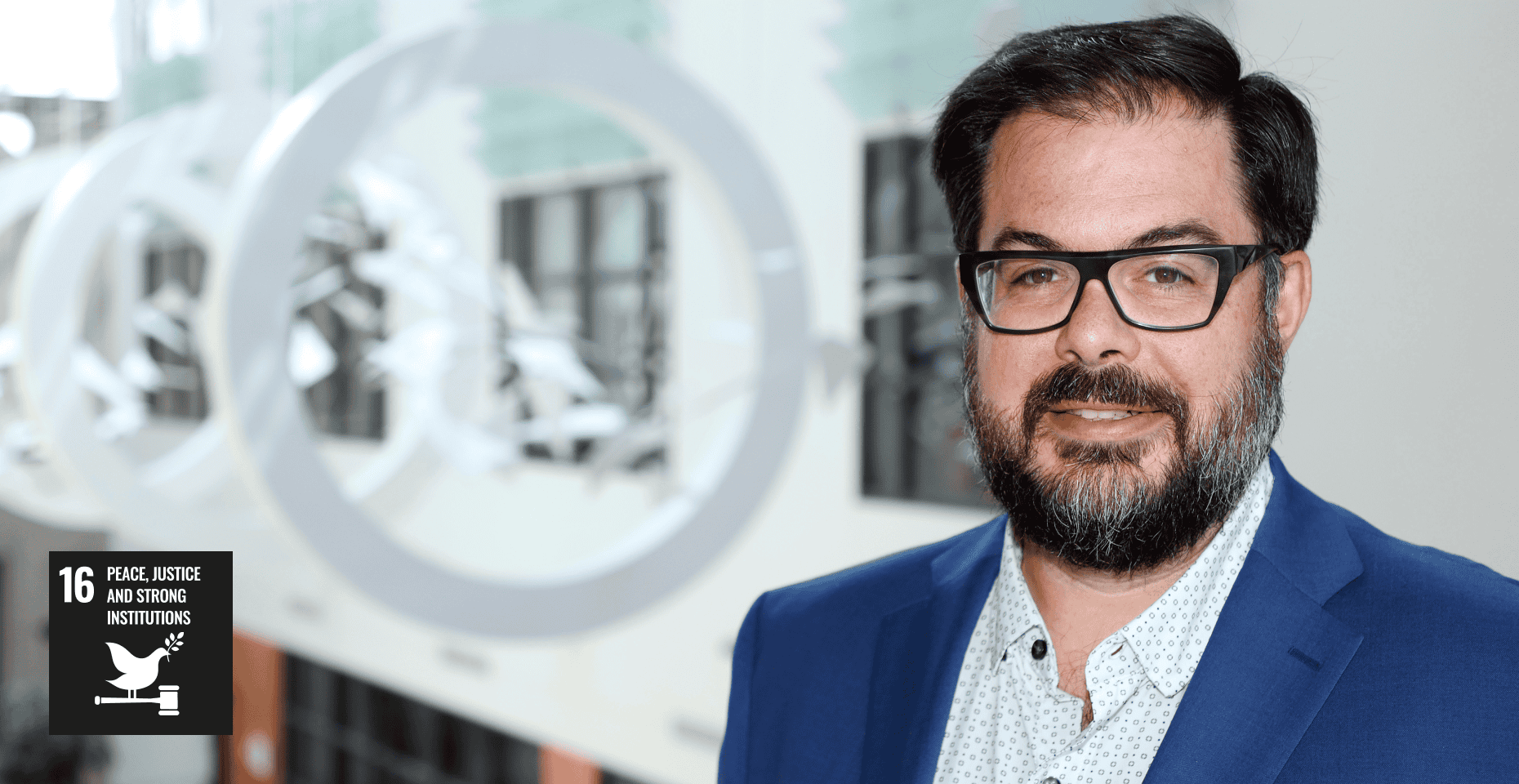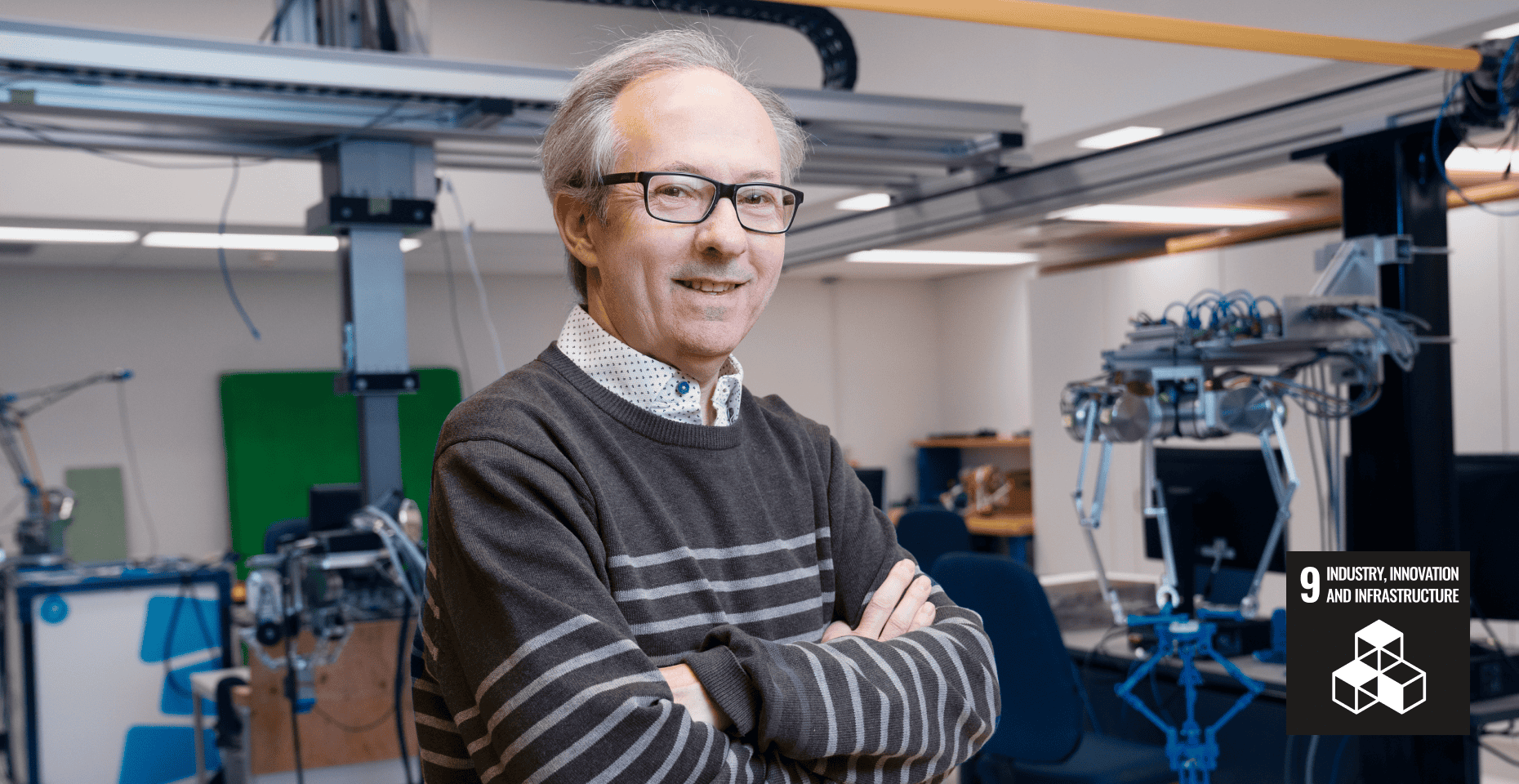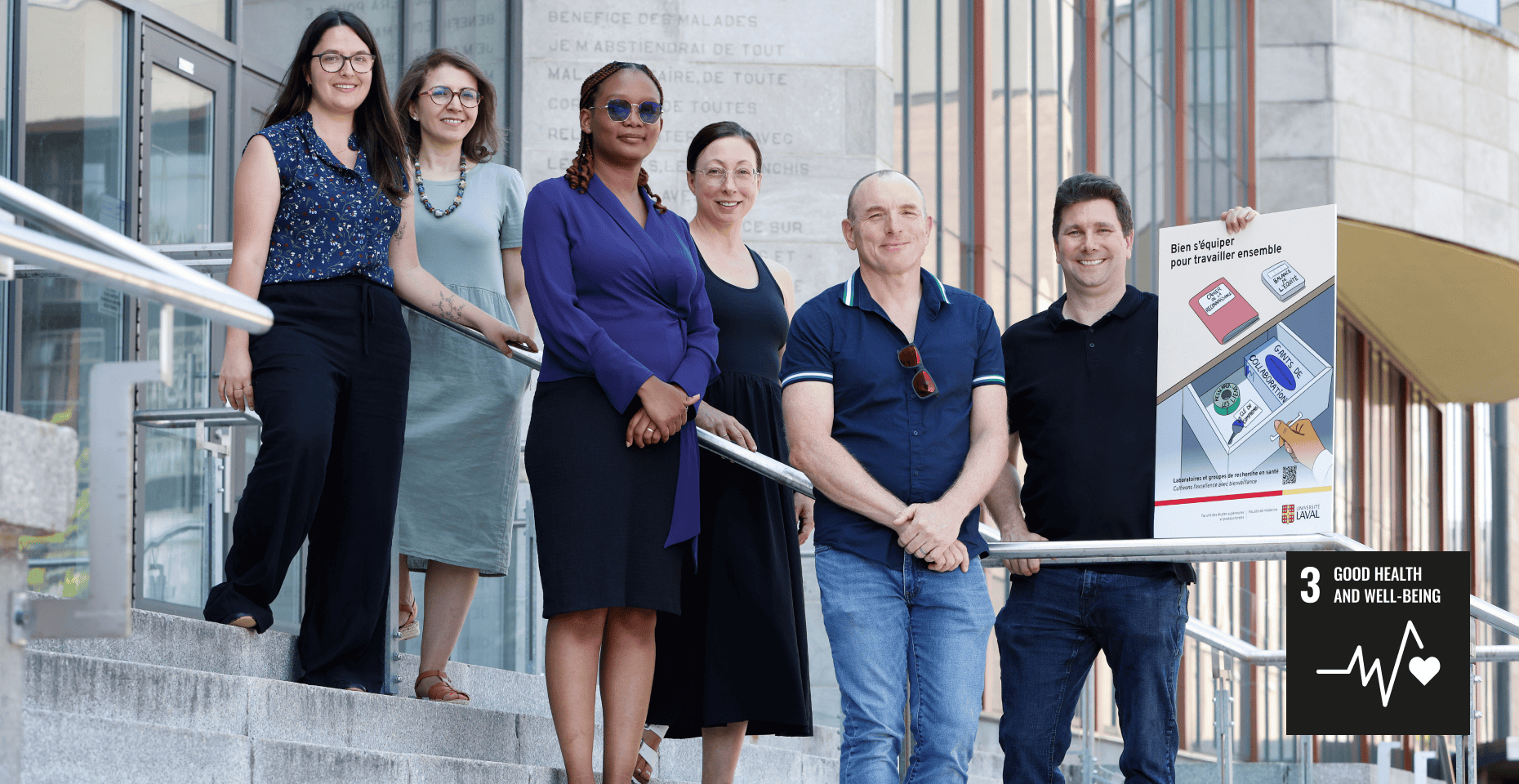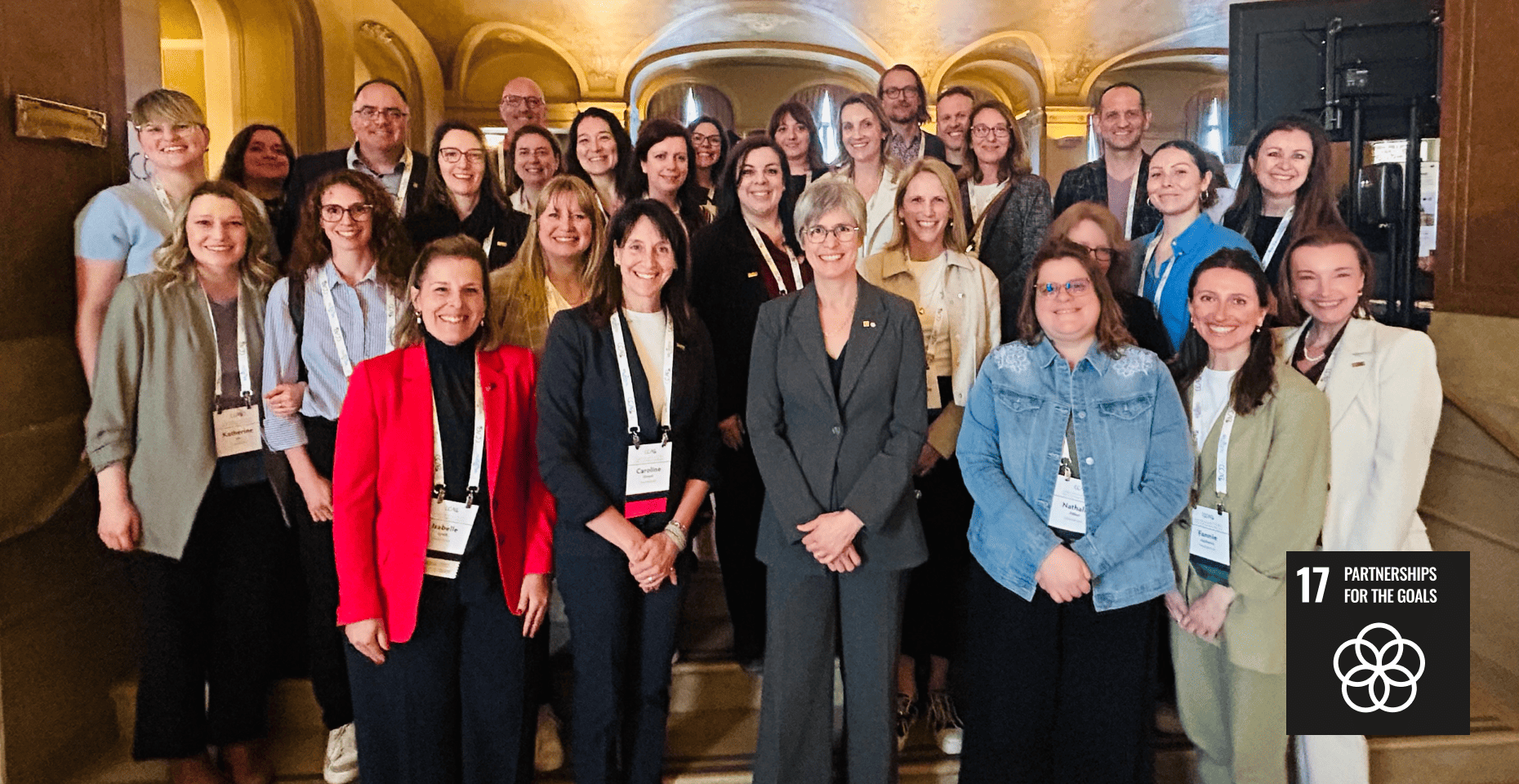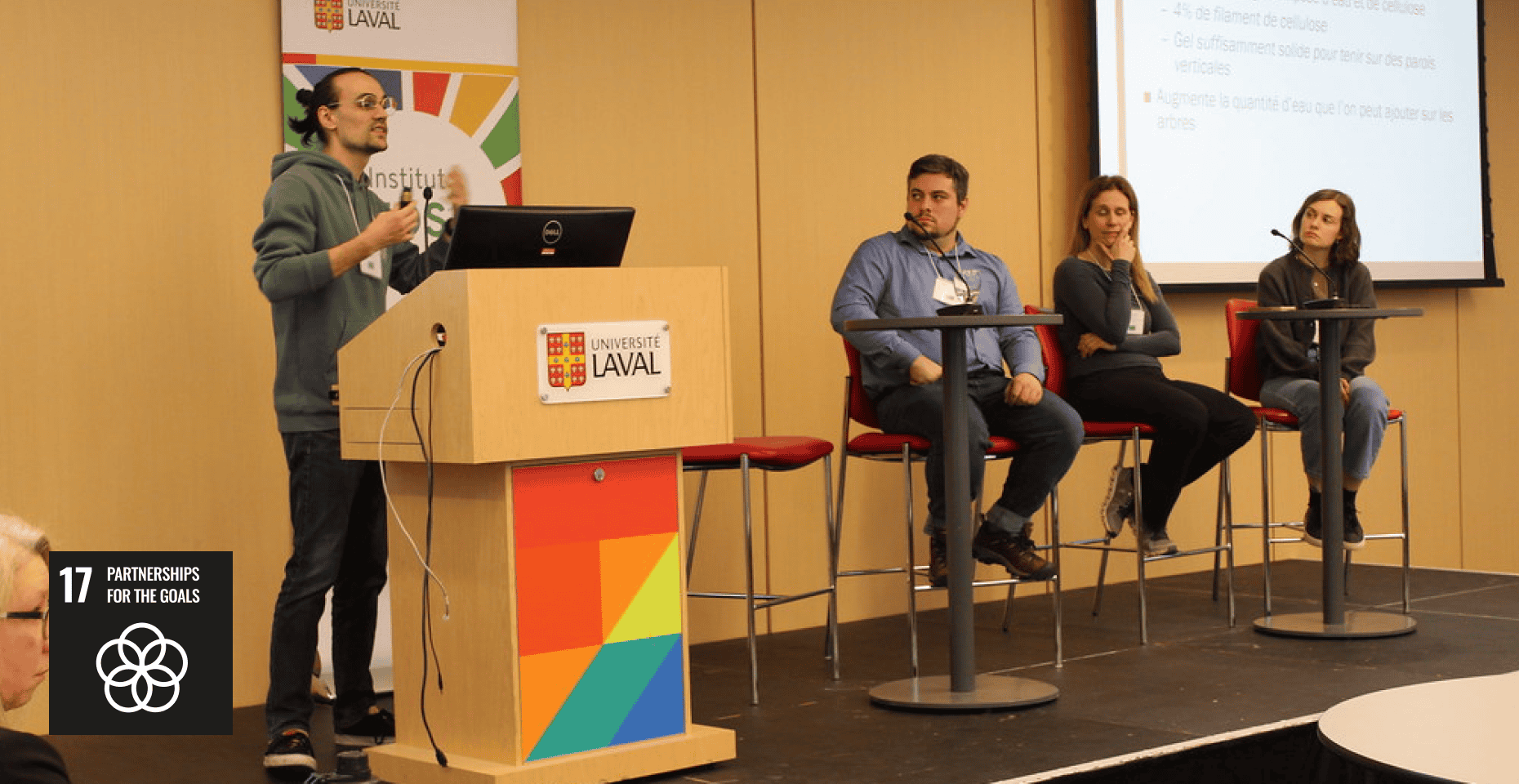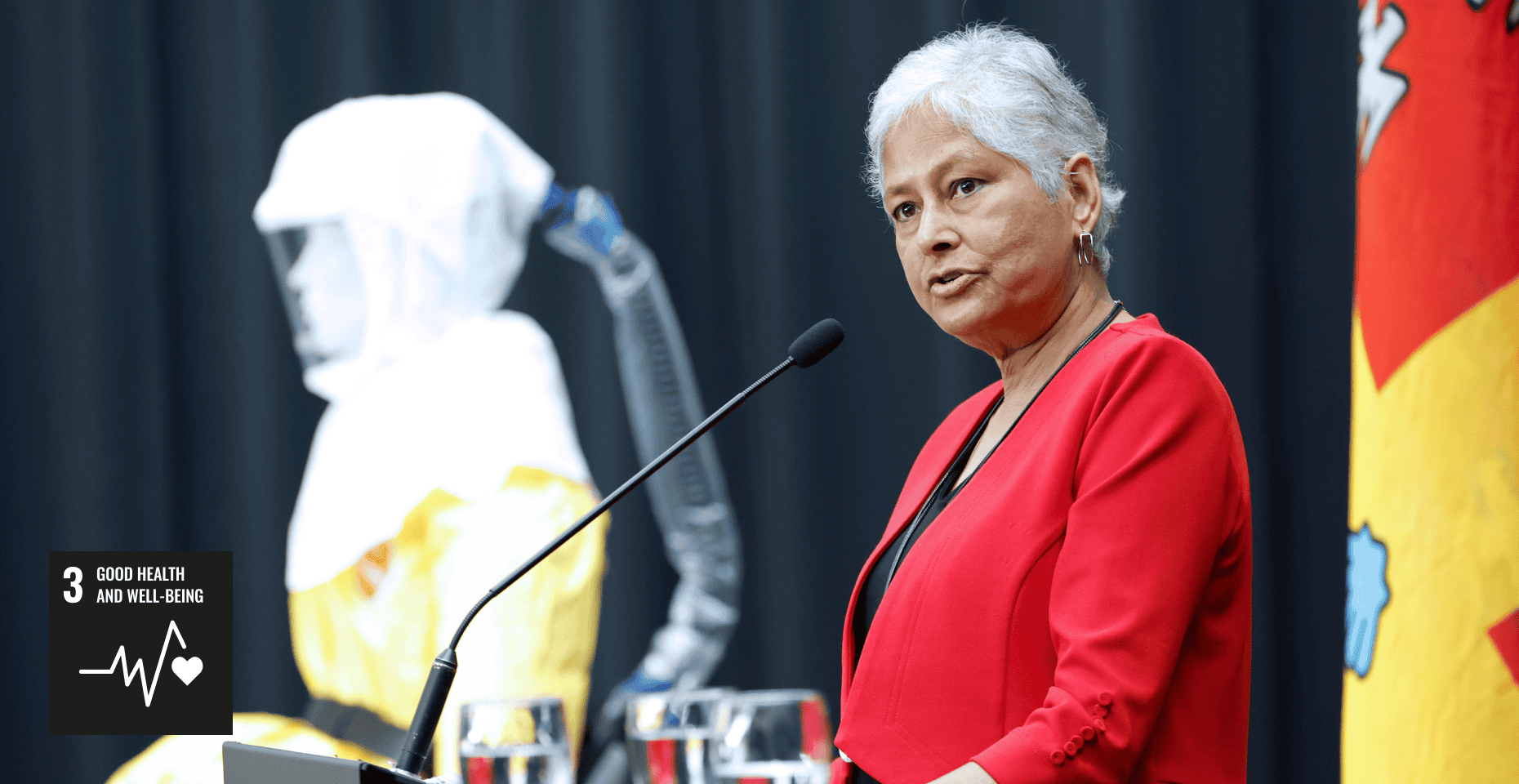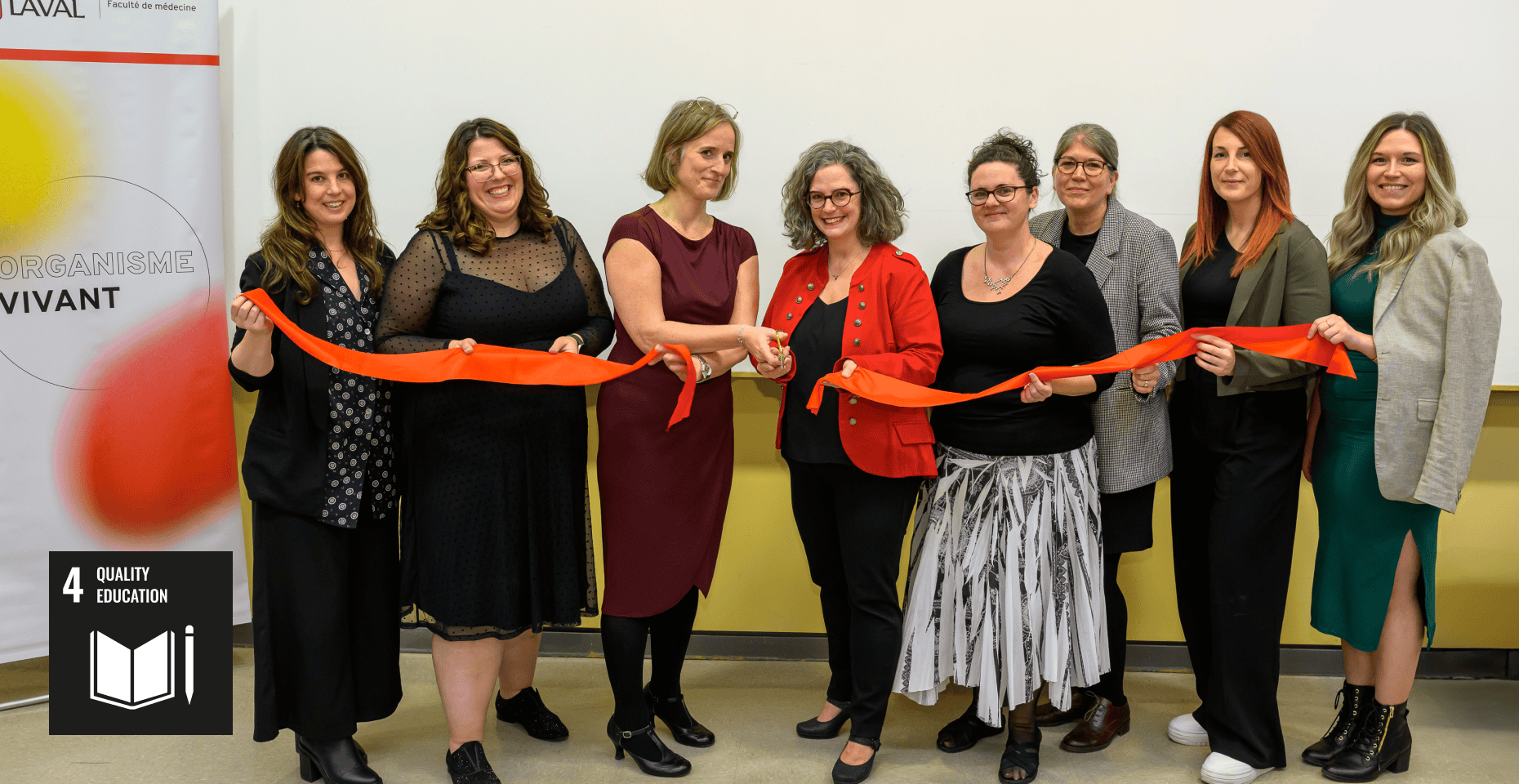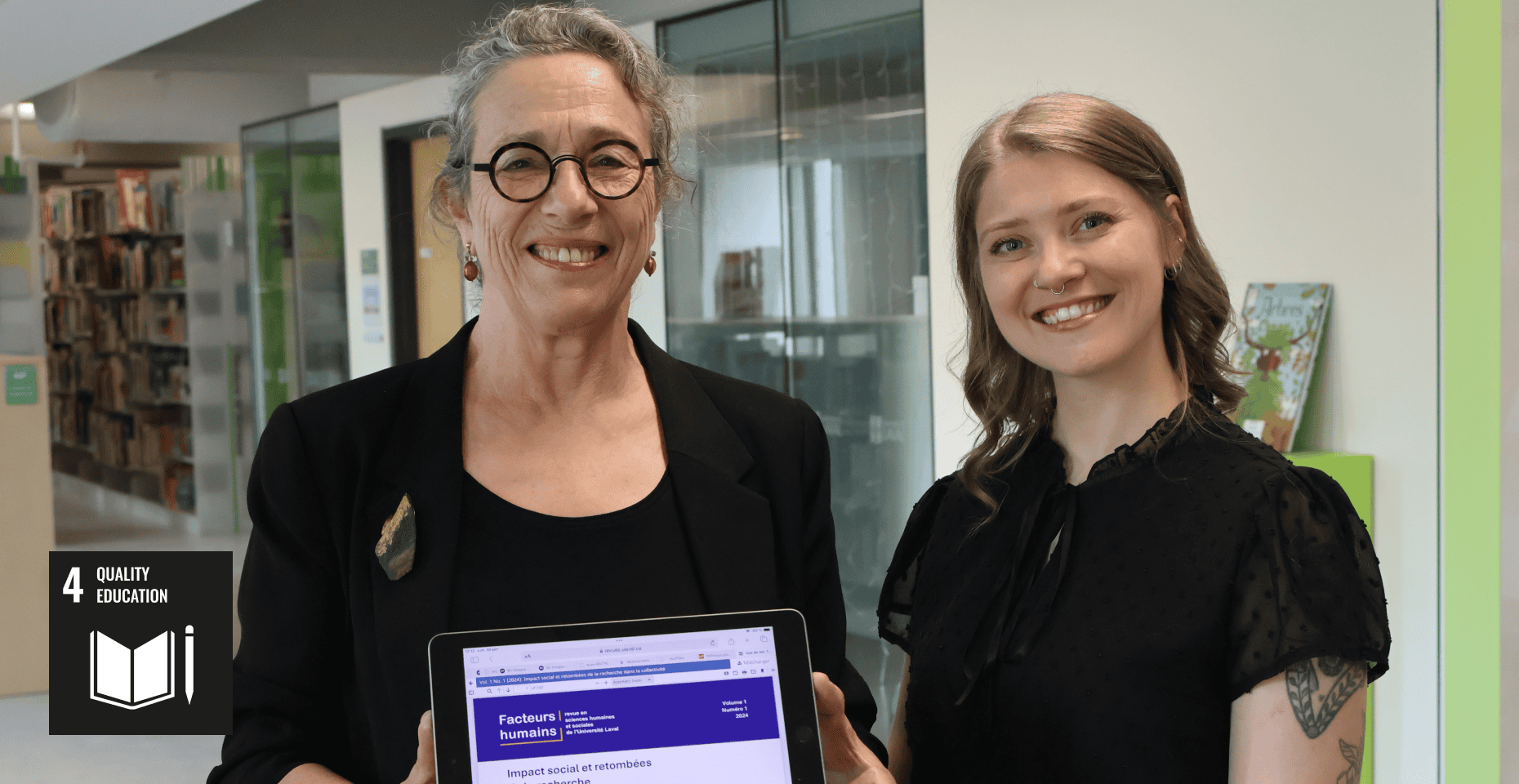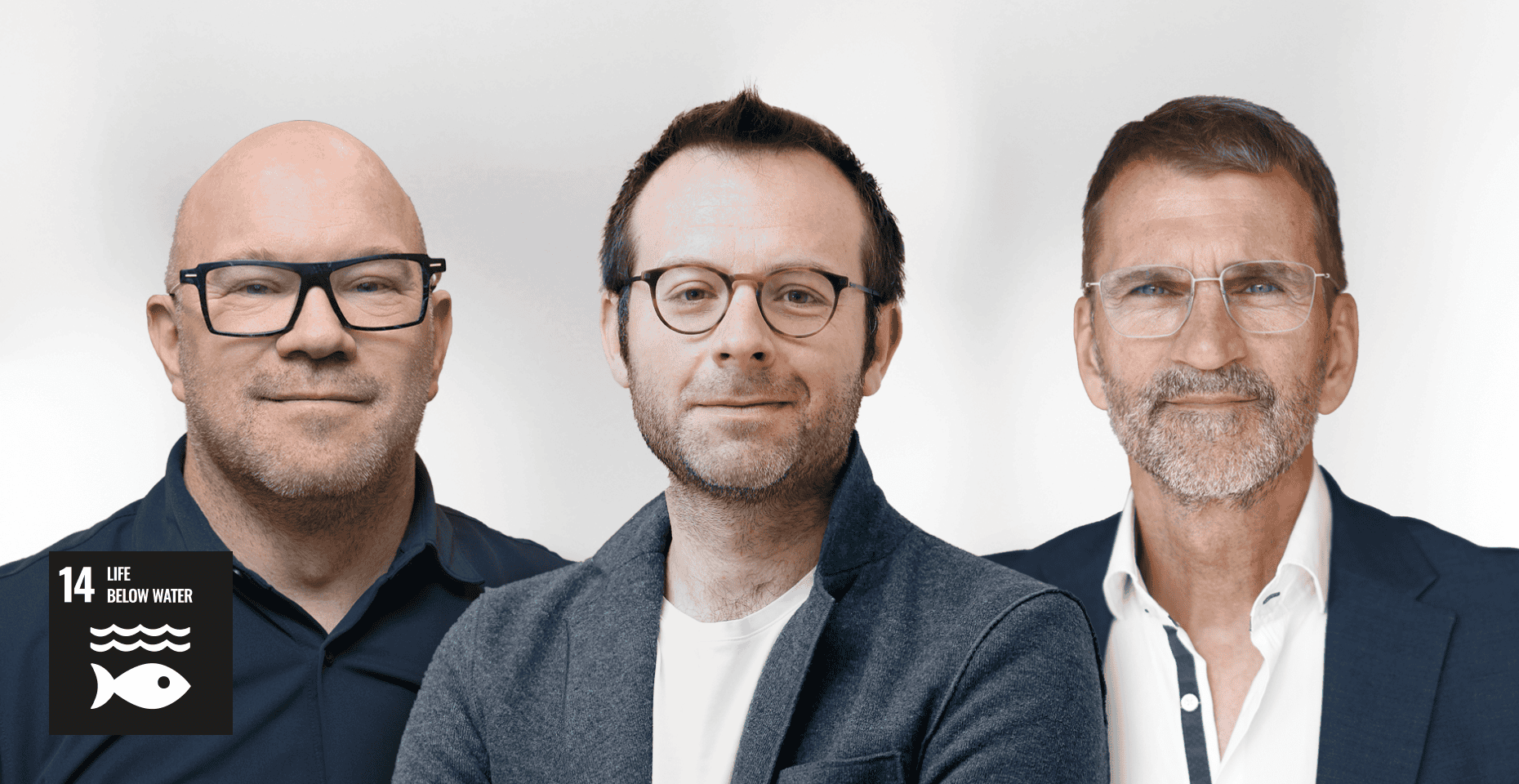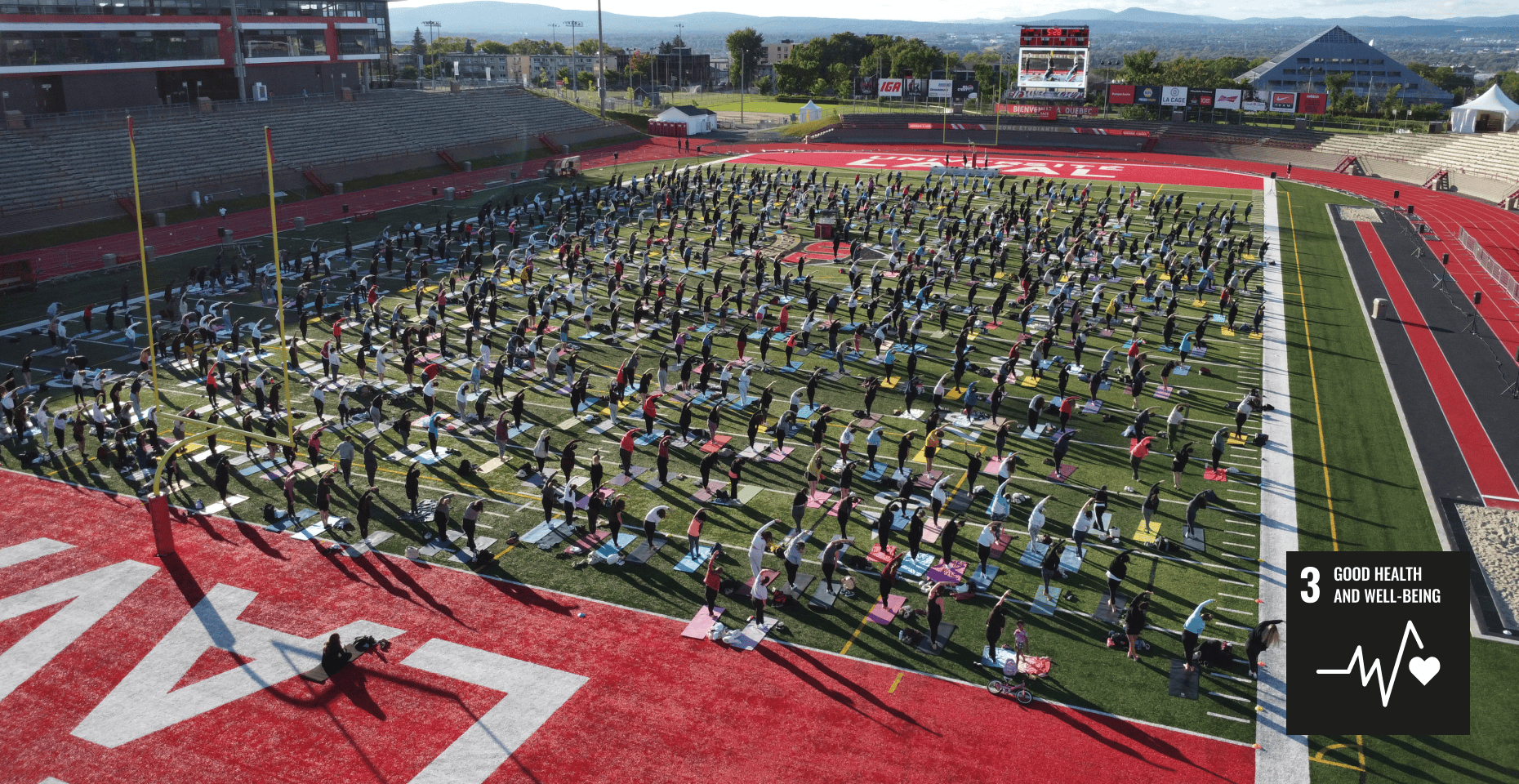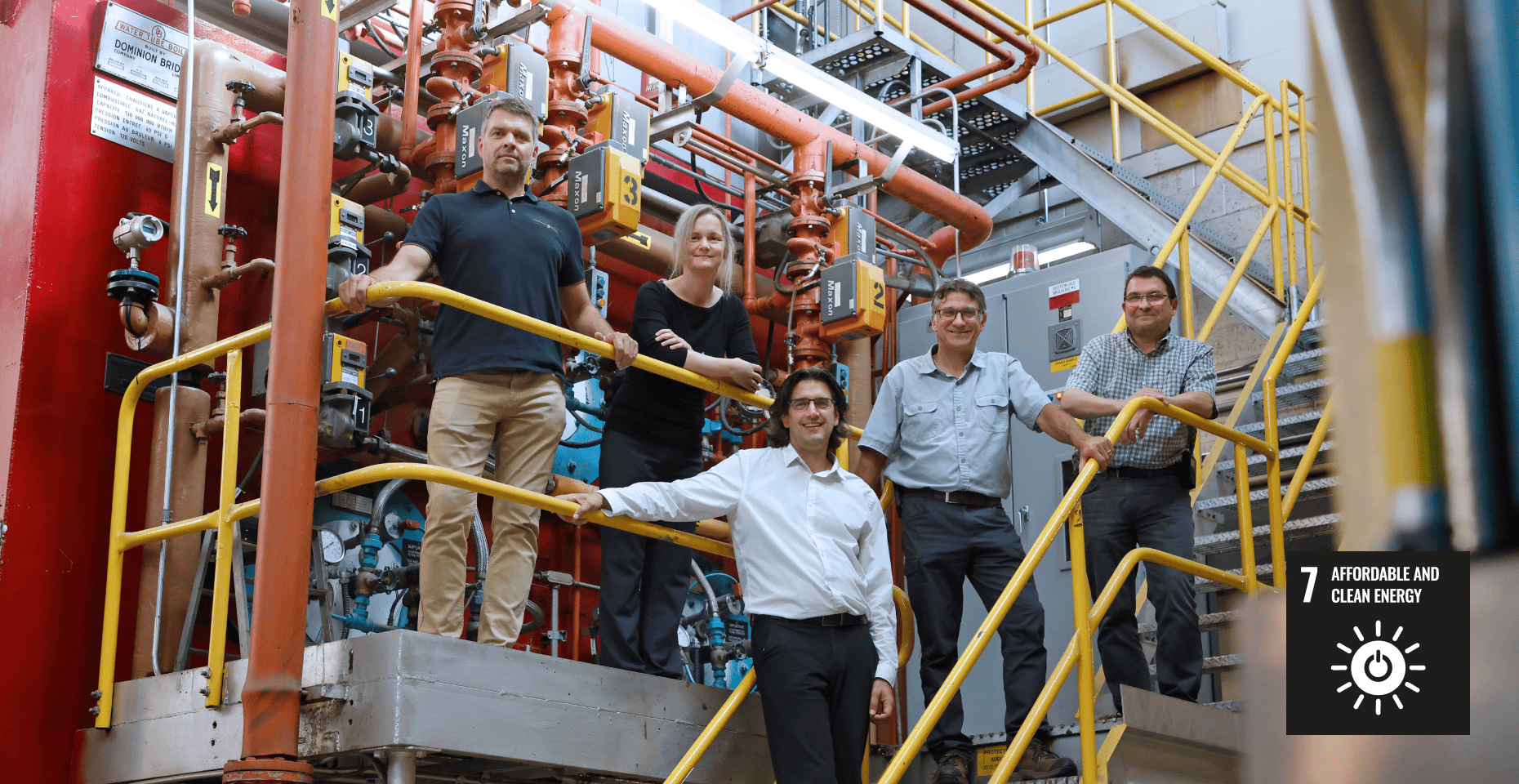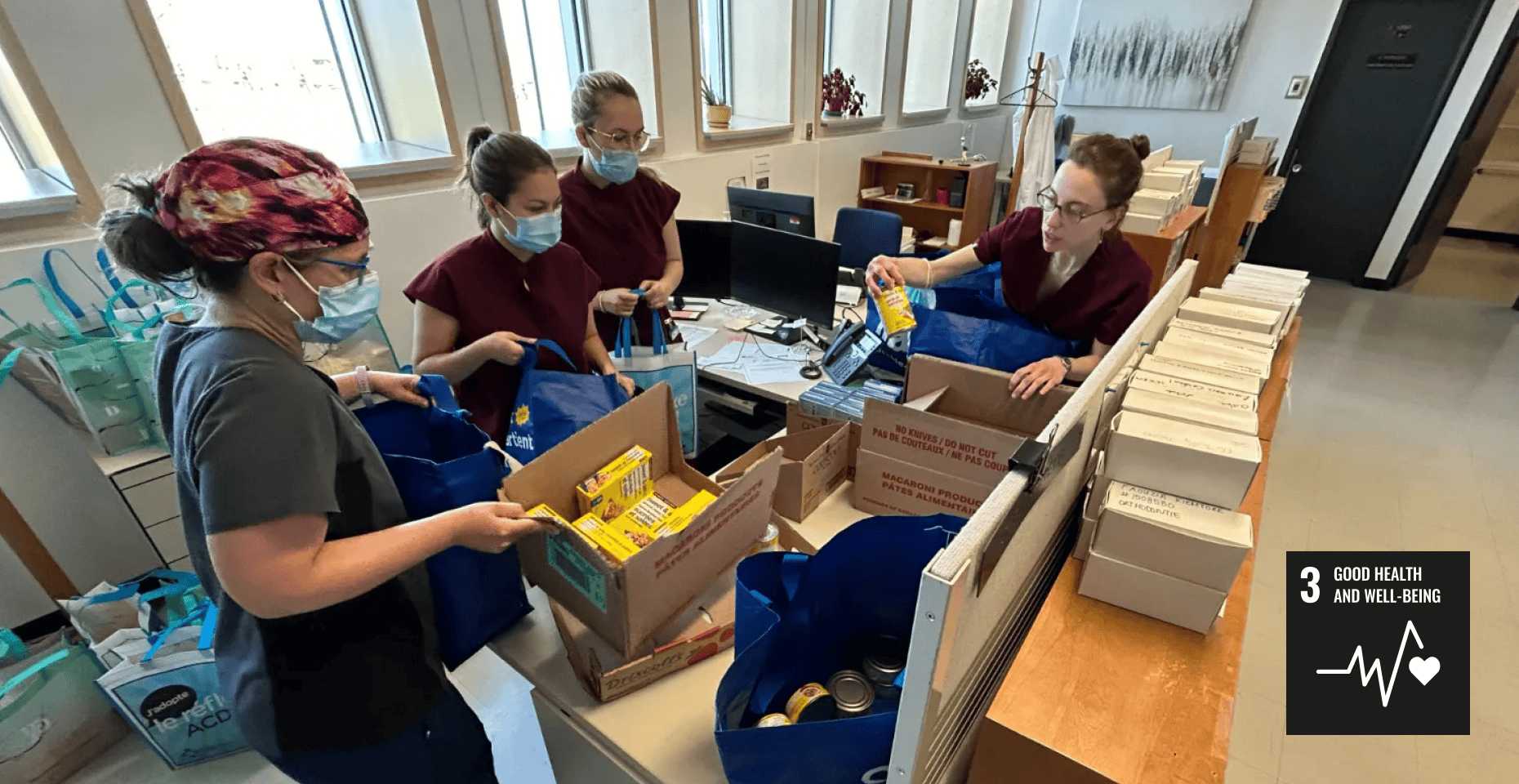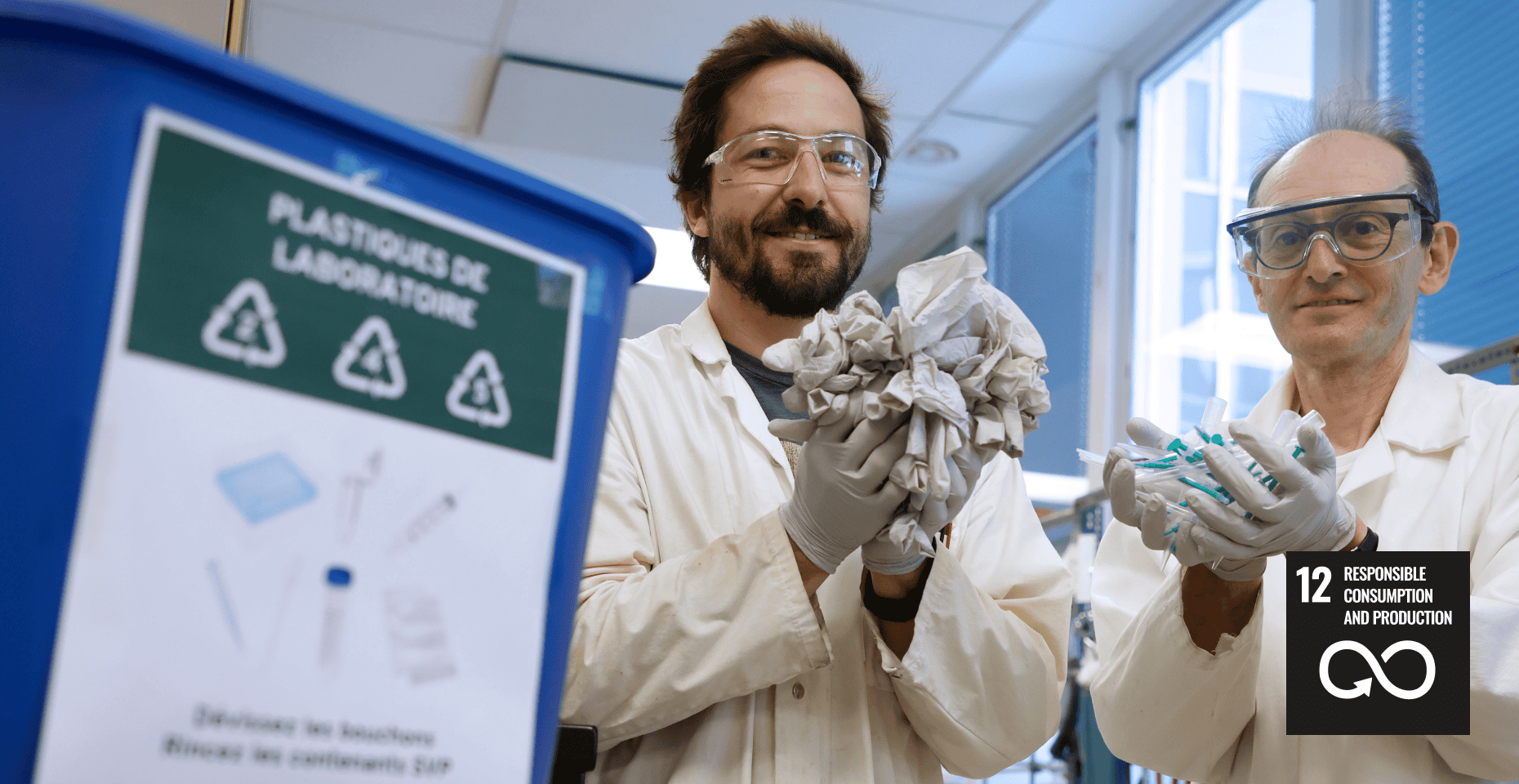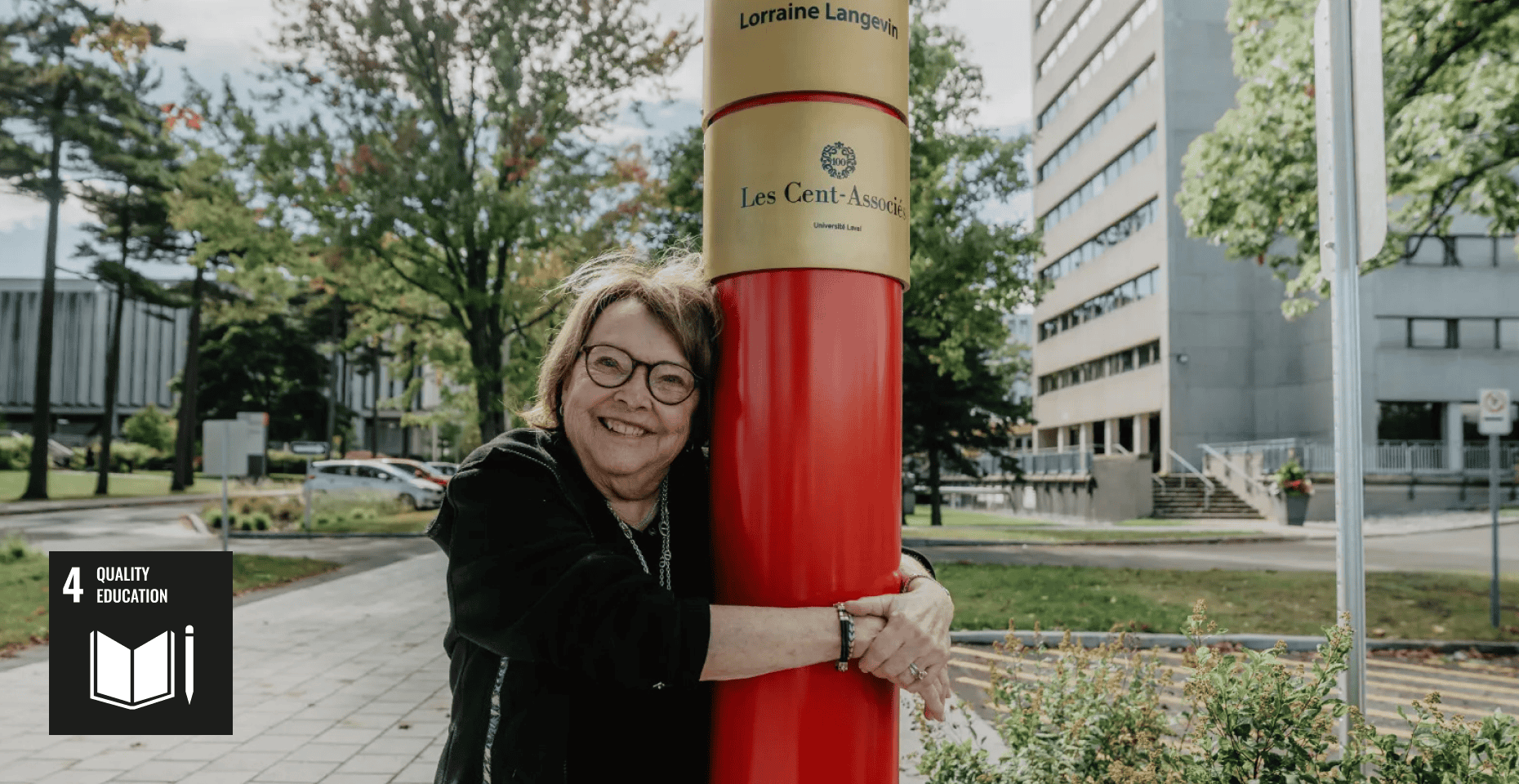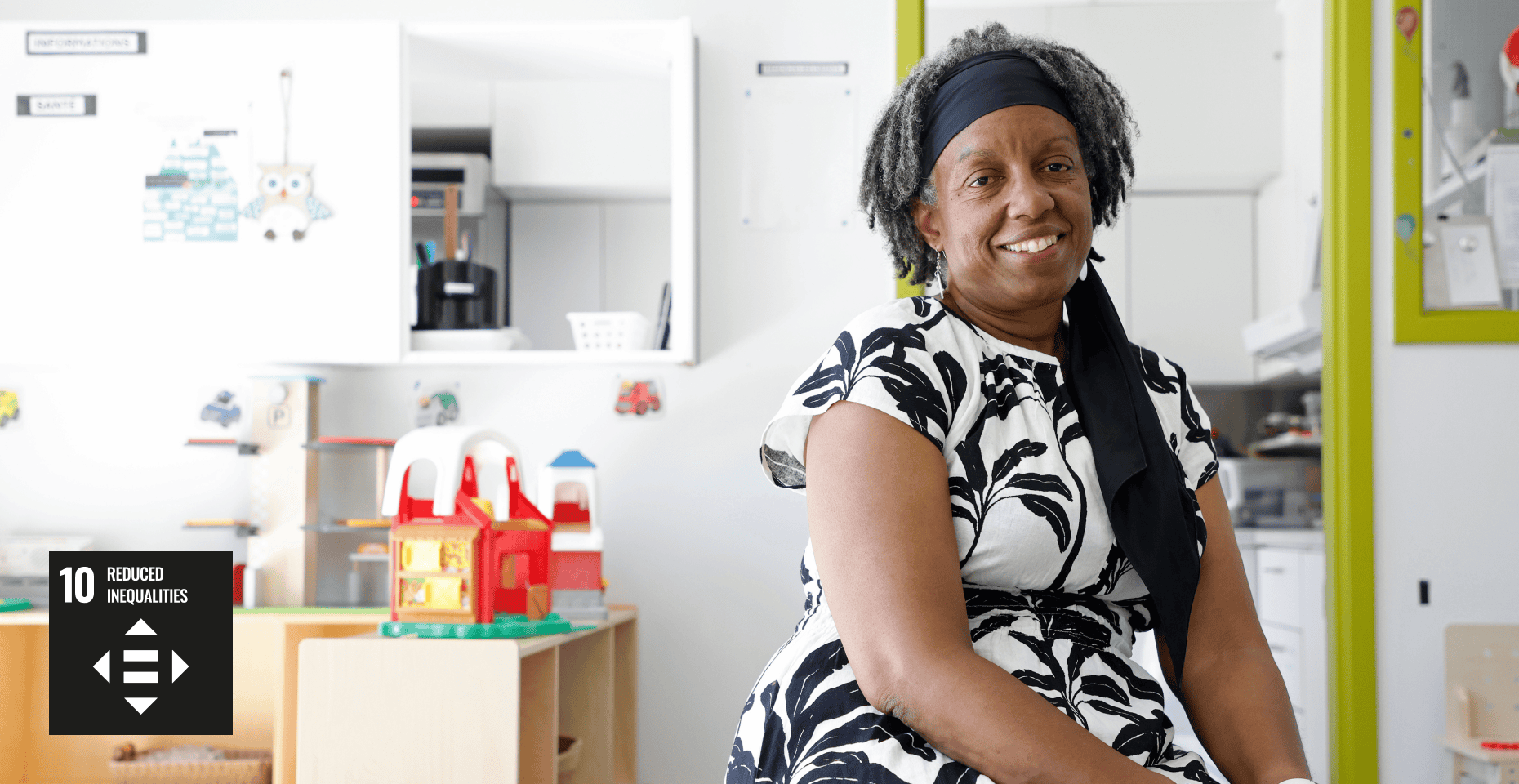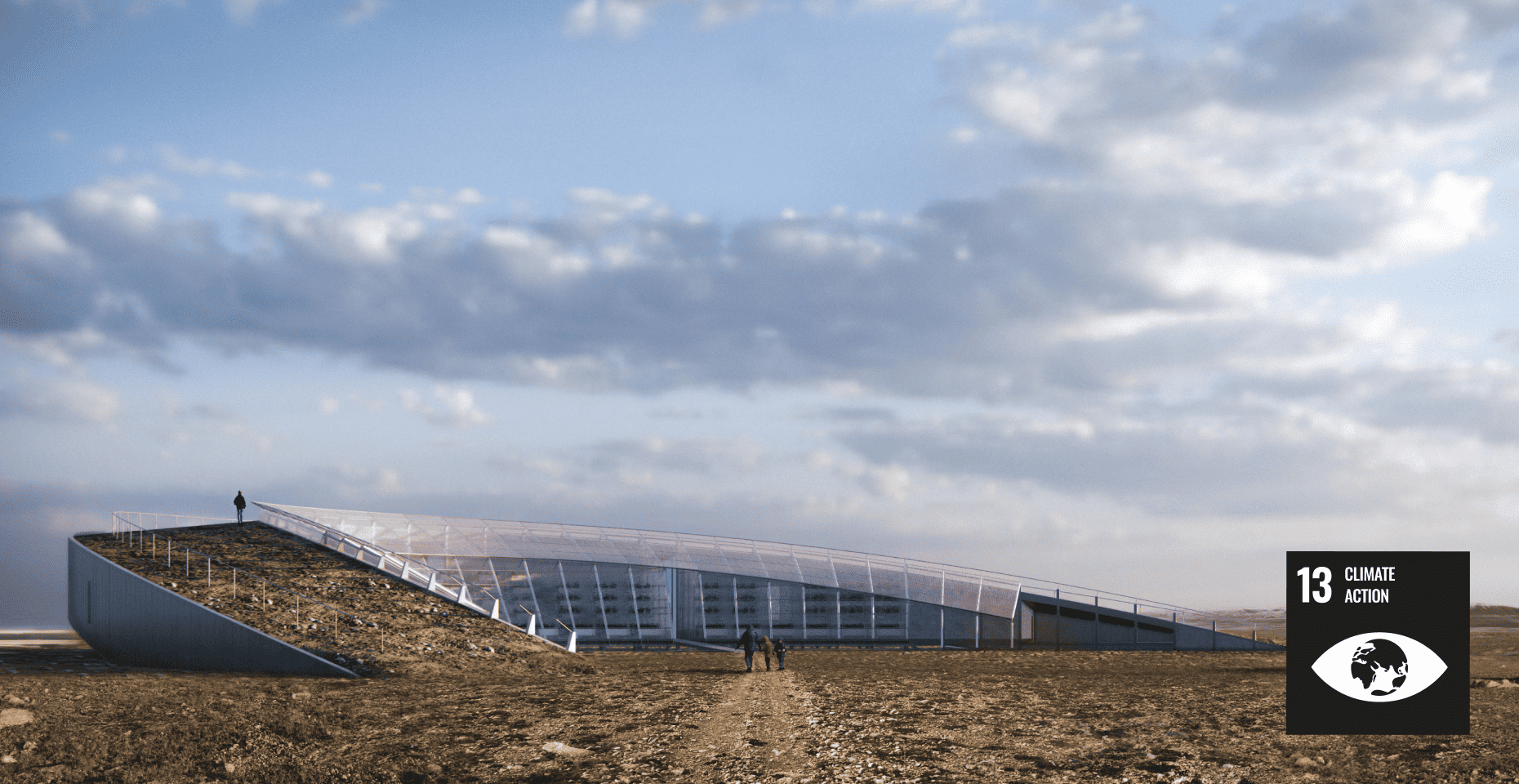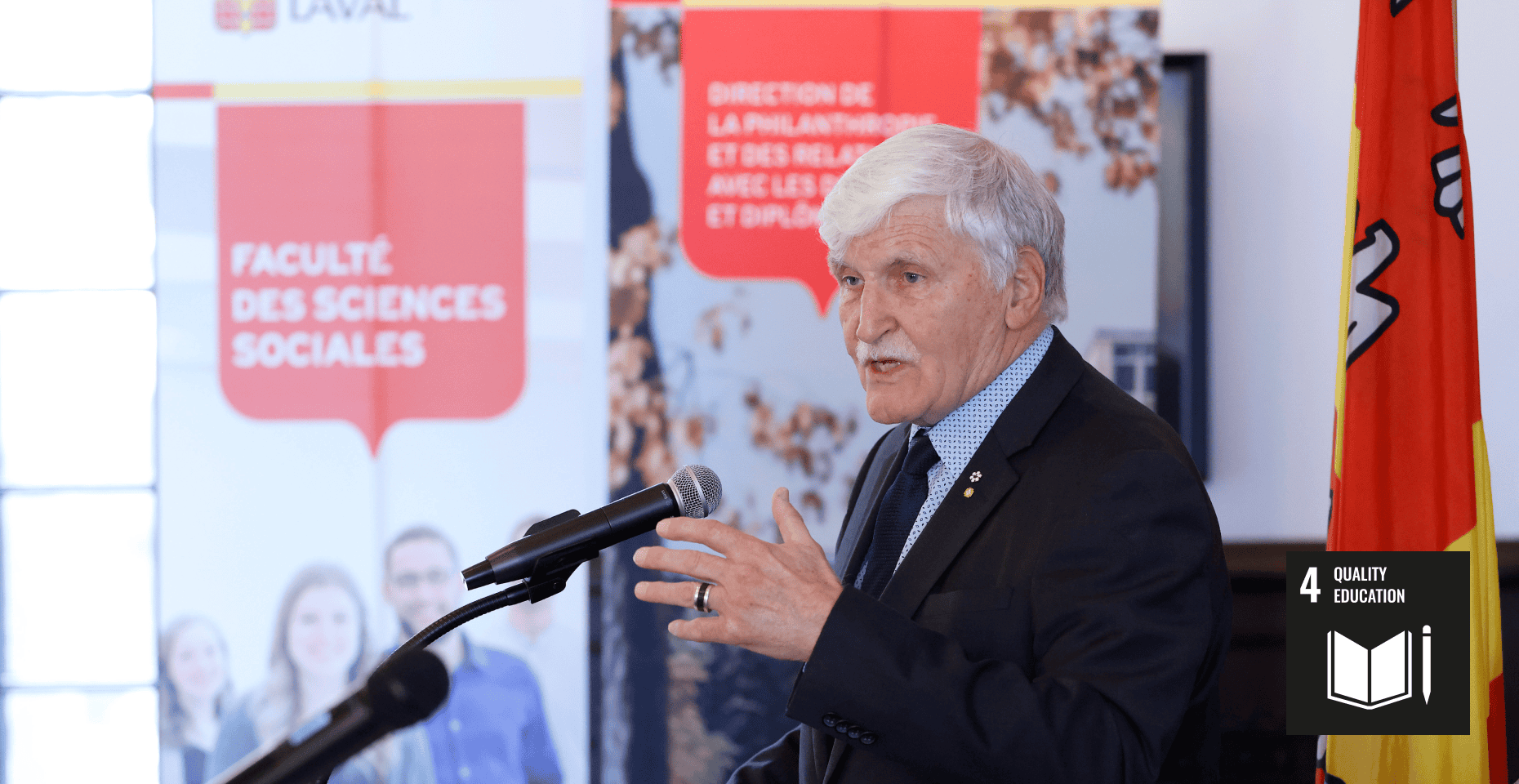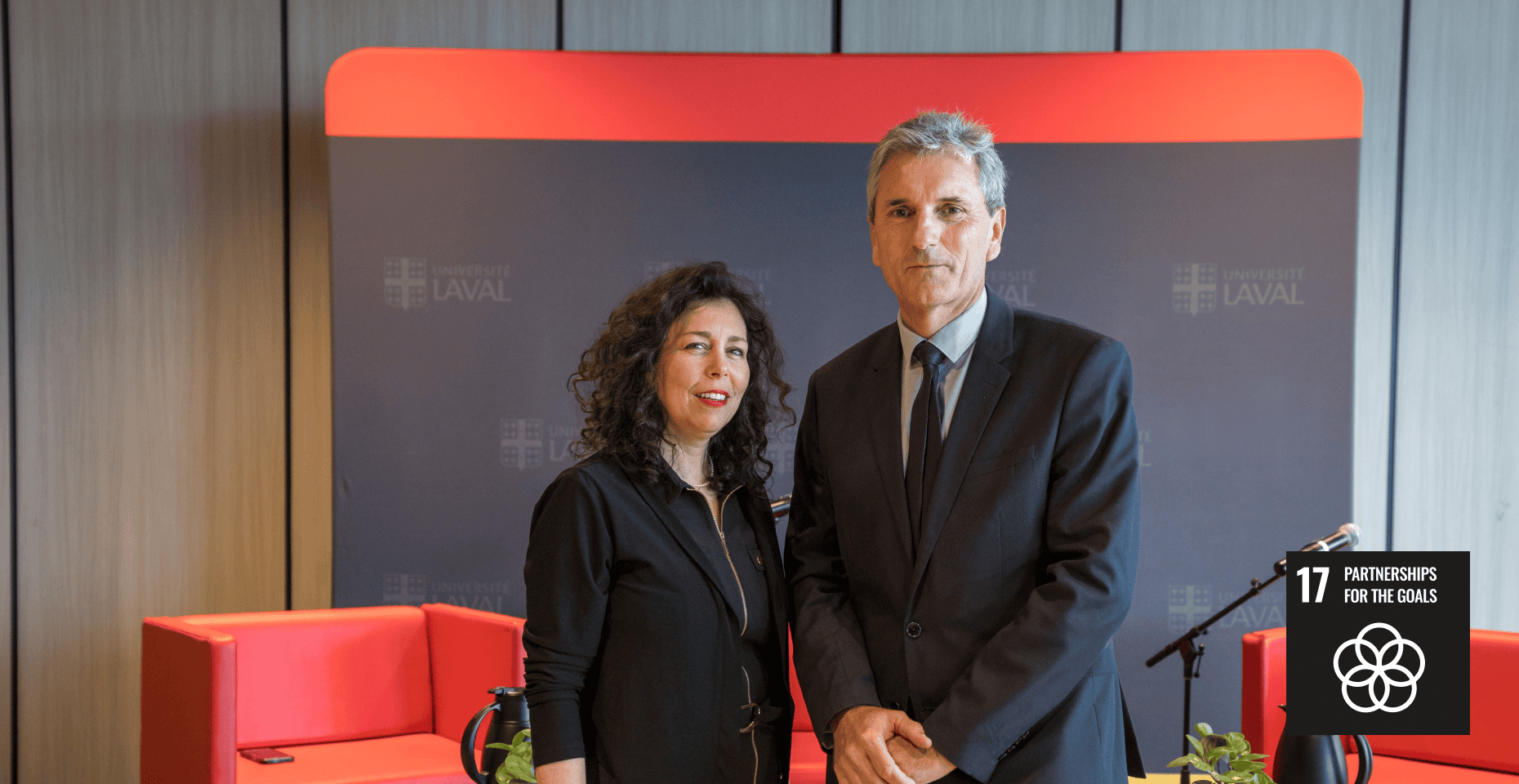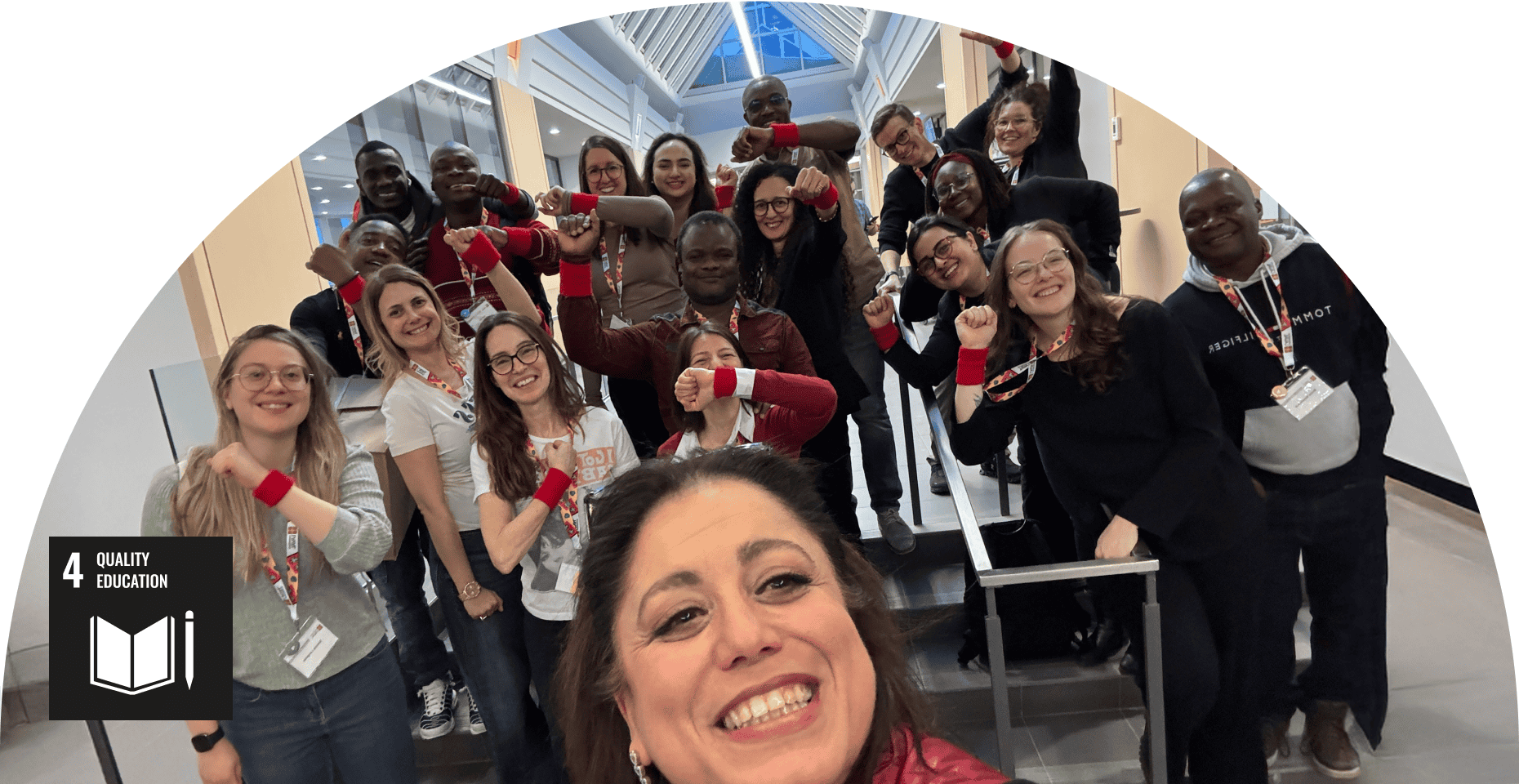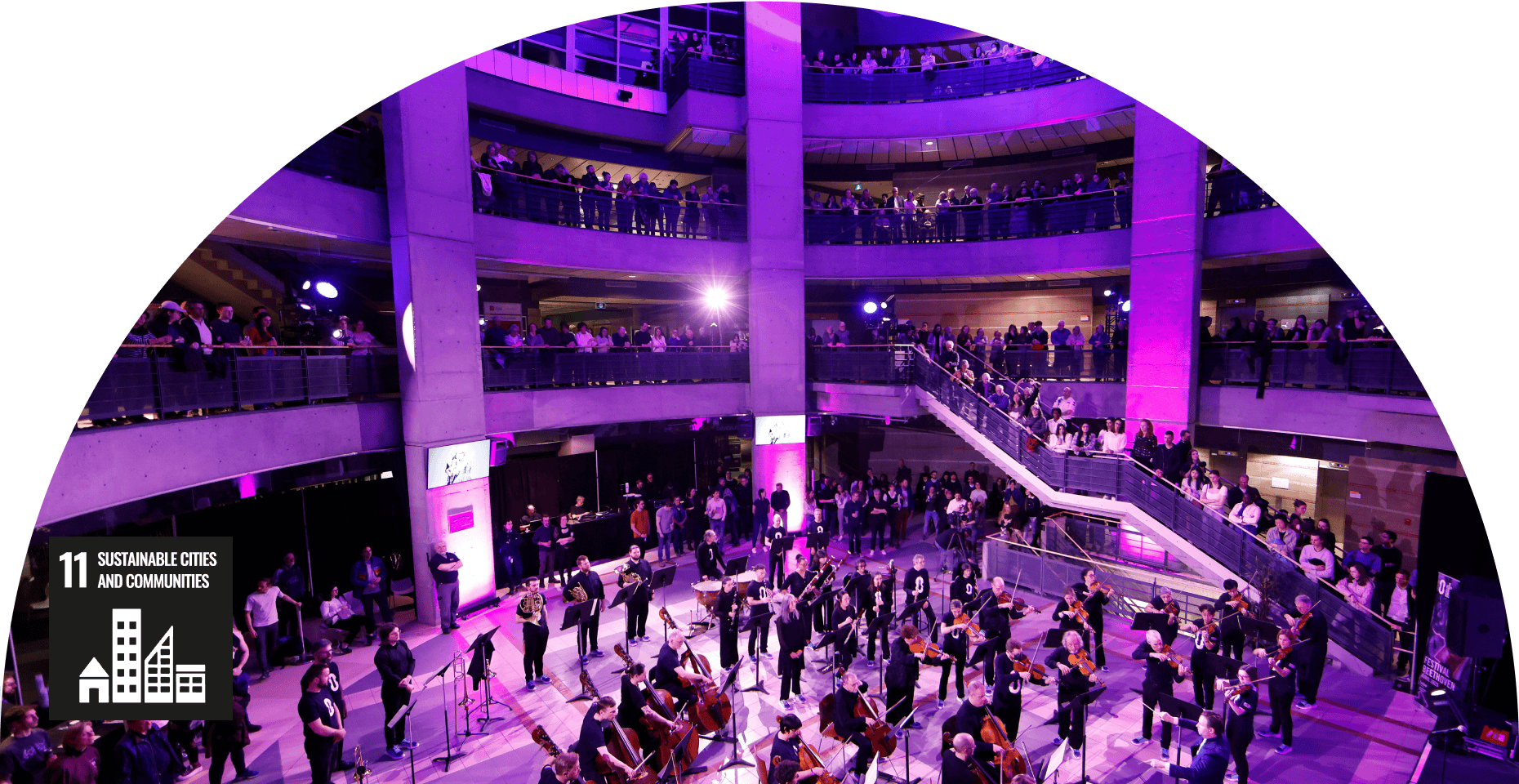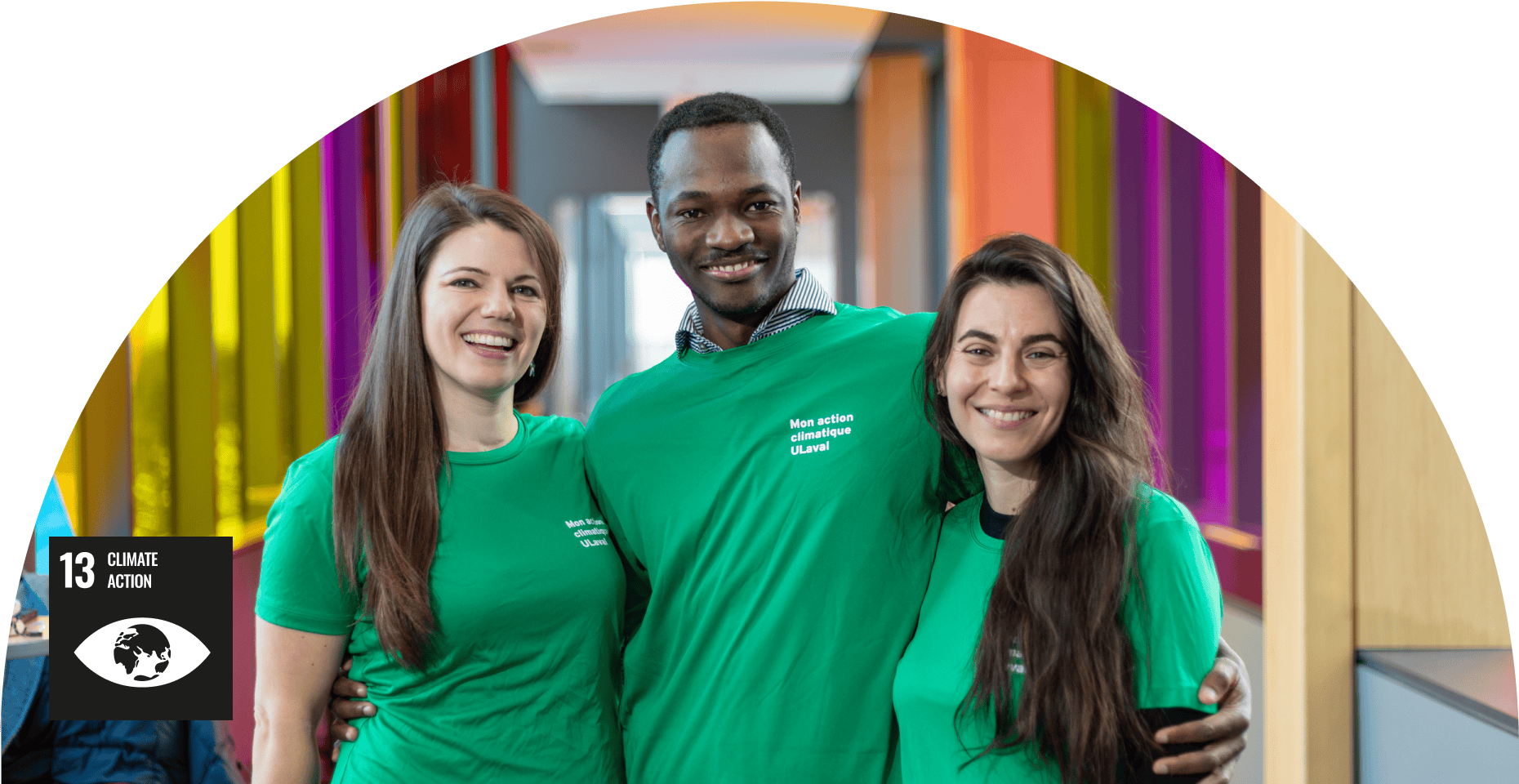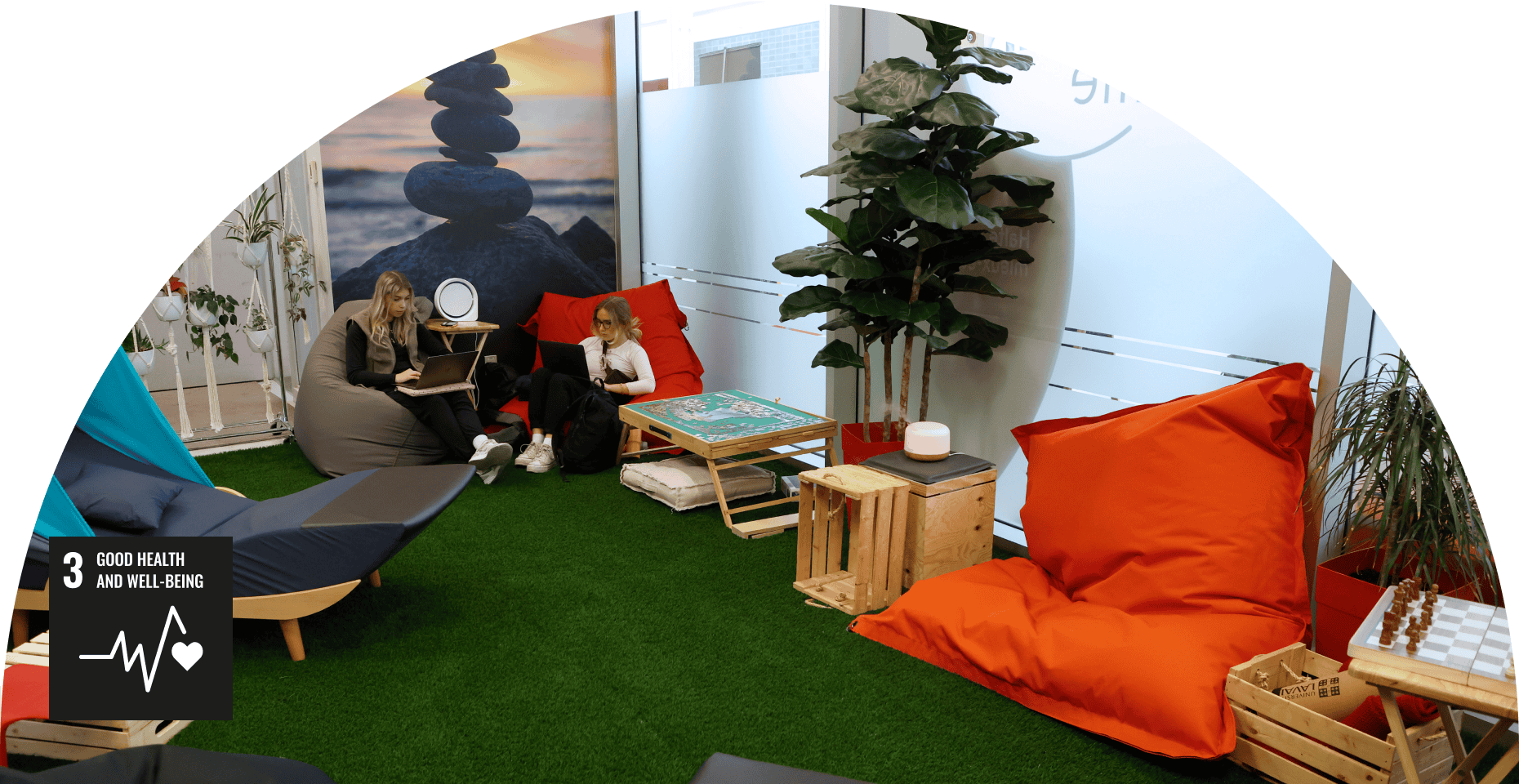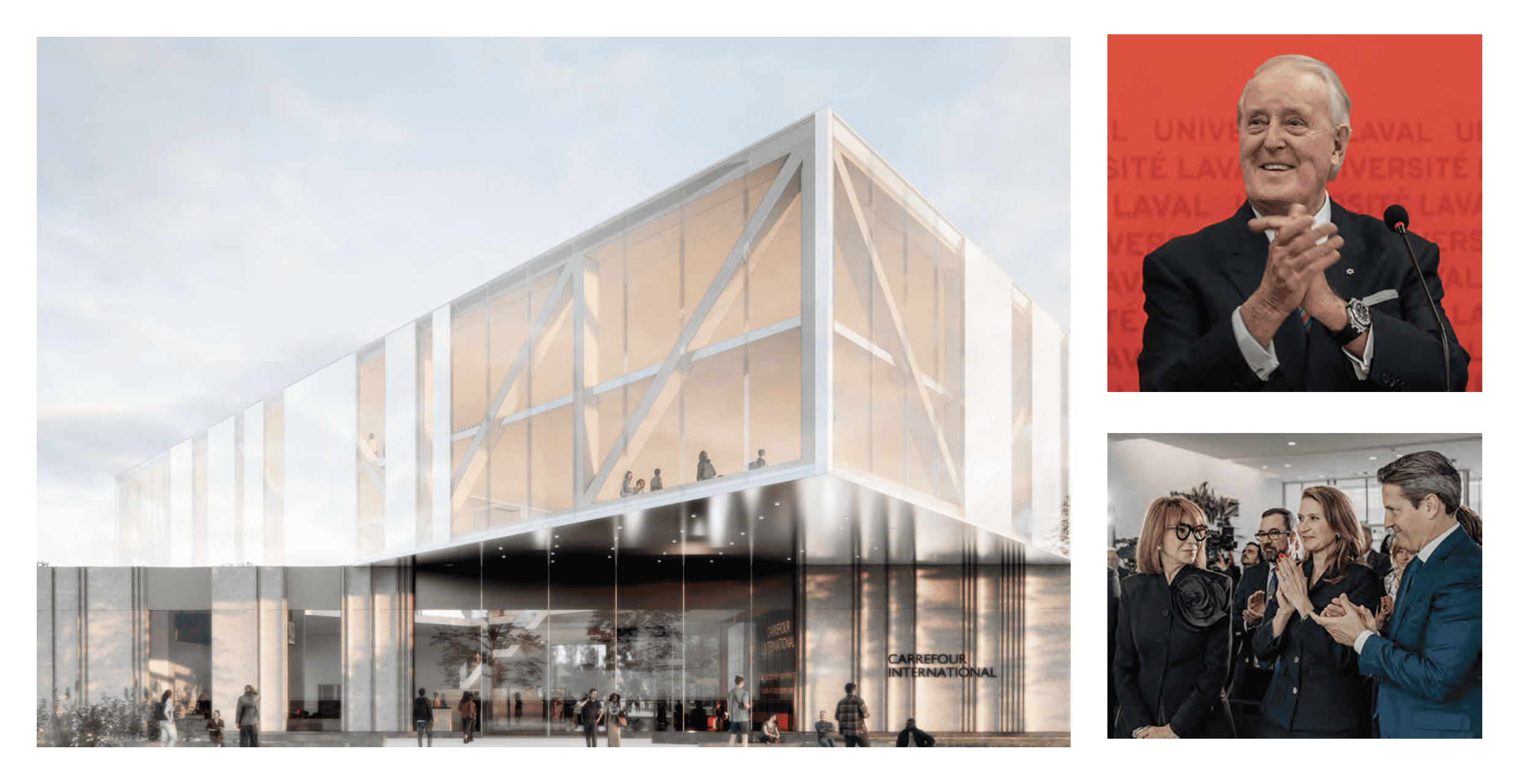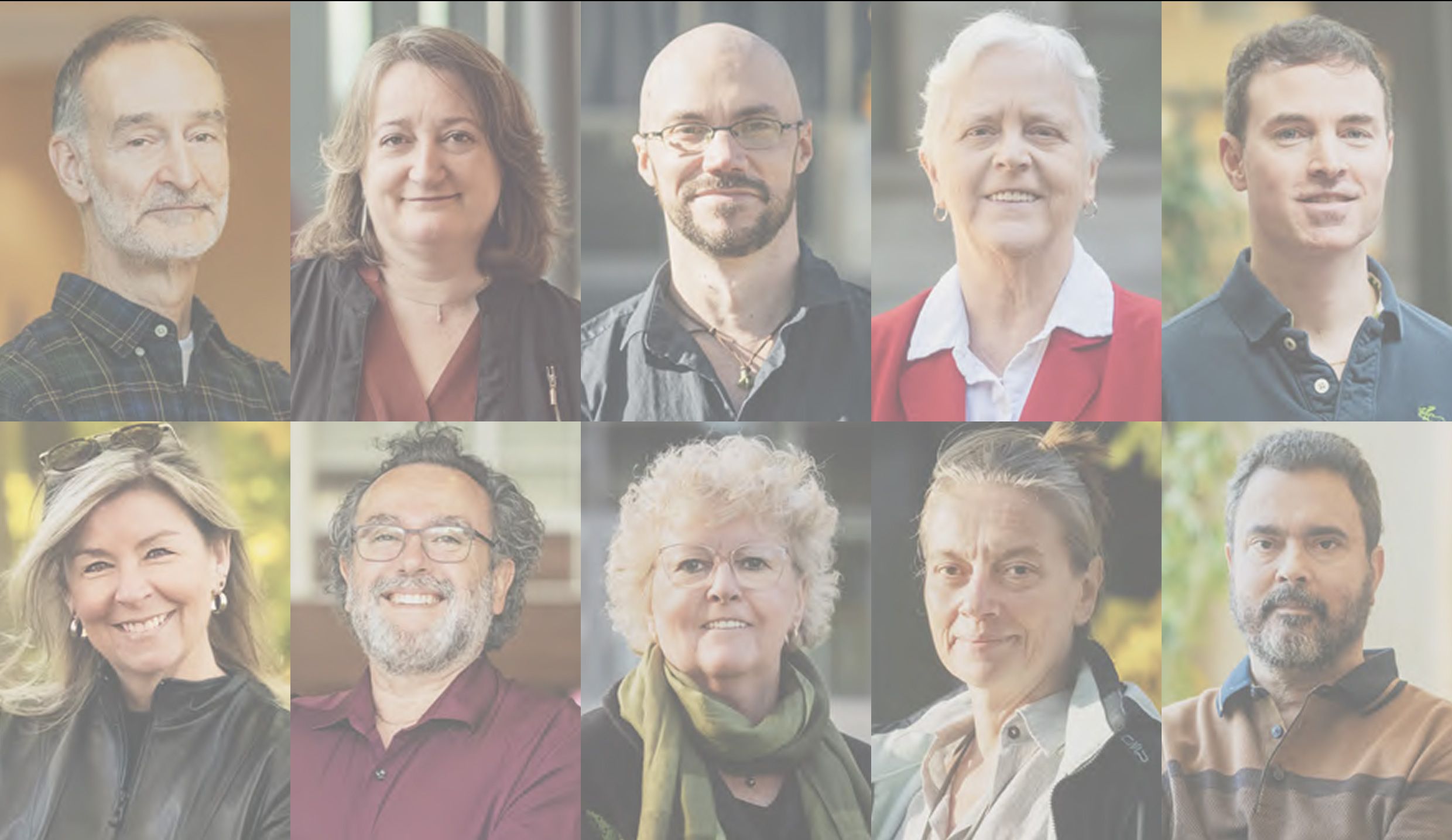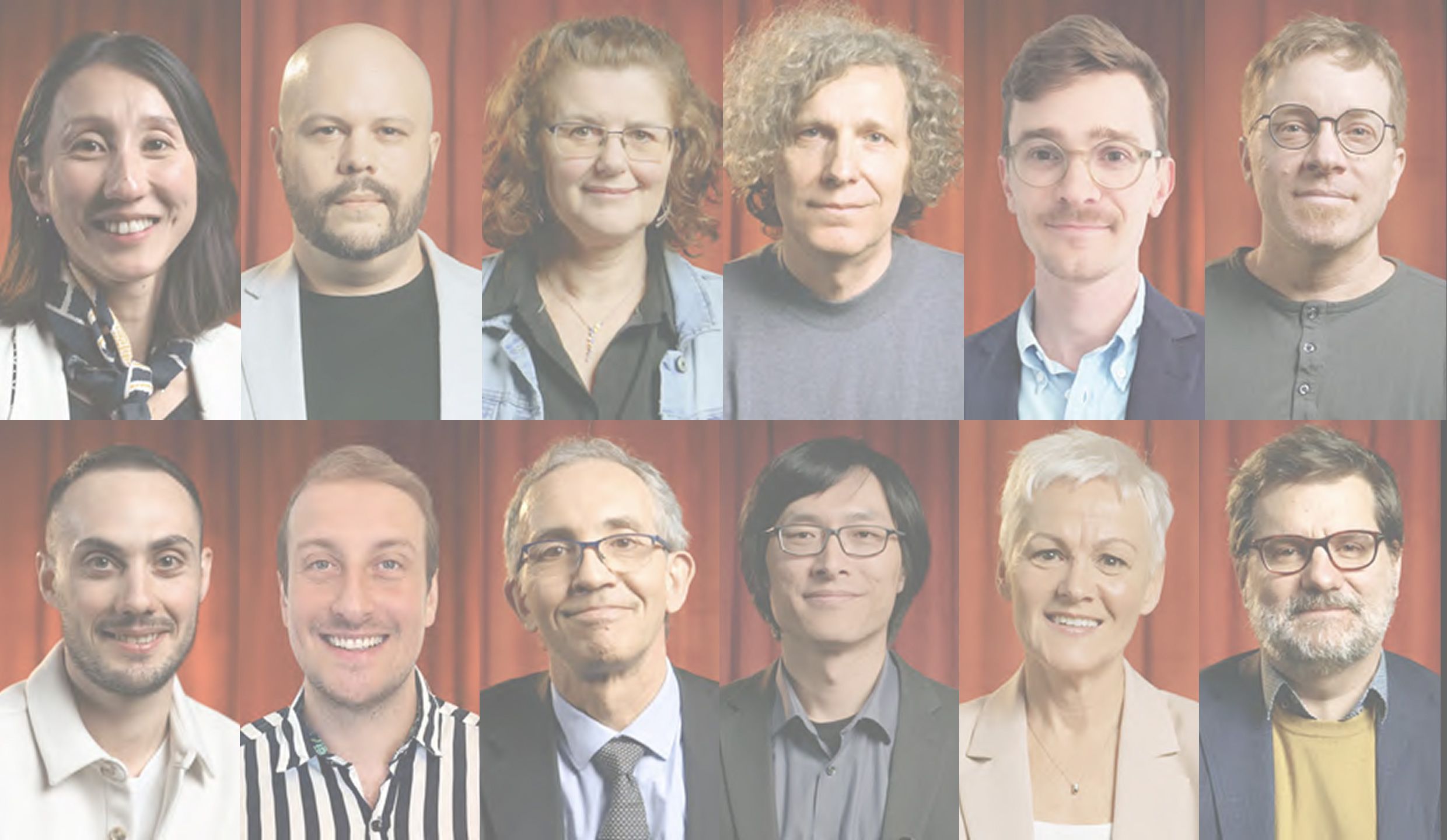Inspiring the Future
Word from the rector
Innovating together to transform the world
In 2024-25, Université Laval confirmed its role as a driving force for innovation and collaboration. As our community believes major issues require a collective effort, it has harnessed its intelligence, creativity, and commitment to effect a lasting impact.
Through research projects, revised teaching practices, and strong partnerships with community, economic, and scientific communities, our University has emerged as an agent of change. Our initiatives—rooted in the values of caring, integrity and inclusion—have addressed real challenges both here and elsewhere.
This report illustrates our community’s rich and diverse actions. Each of them embodies our commitment to innovate responsibly to meet our sustainable development goals.
I would like to thank everyone who helps make Université Laval a committed, bold, and forward-looking institution.
Sophie D’Amours
Rector
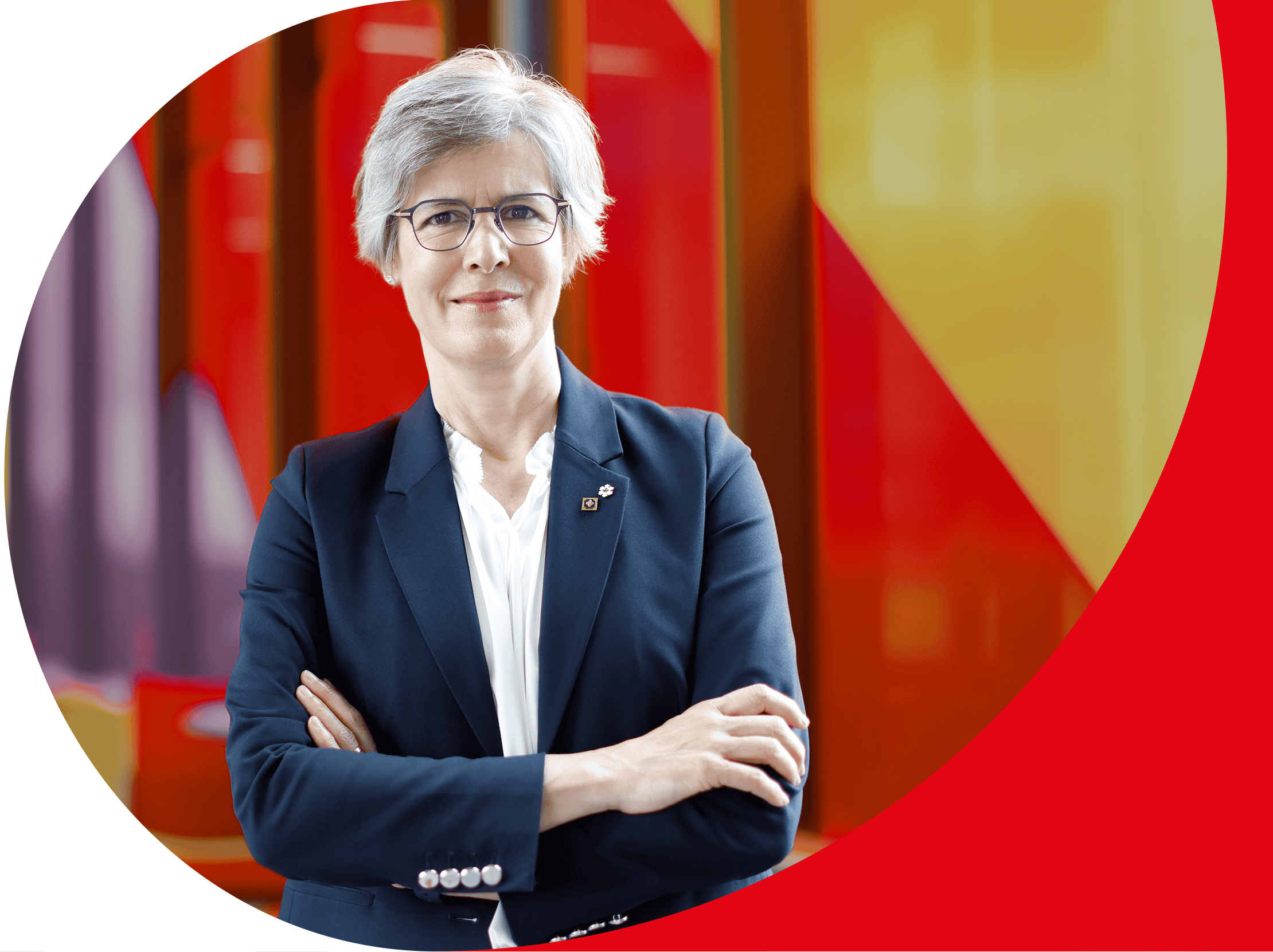
Success factors
To be a university that stands out for the scale of its impact, our institution must implement and reinforce six success factors. For each success factor, discover five examples of projects started or completed in 2024–2025. Each project is linked to and demonstrates our community’s commitment to one or more sustainable development goals (SDGs).

Being collaborative and innovative
That means pushing the boundaries to find new solutions and implement innovative practices through alliances and participatory projects, both internal and external, that engage communities.
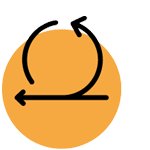
Being agile and proactive
That means reinventing new ways of doing things, acquiring new knowledge, working together, and taking the initiative.
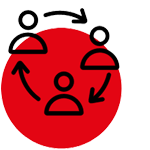
Being interdisciplinary
That means pooling our strengths and knowledge to tackle increasingly complex problems by sharing experiences and points of view.
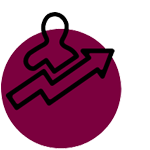
Being civic-minded and engaged
That means working together toward social progress so that knowledge is generated and shared to meet the needs of communities.

Being inclusive and diversified
That means bringing talent together, fostering debate and promoting creativity by providing a fair and respectful study, work and living environment.

Being international
That means taking action and making an impact beyond Quebec’s borders by encouraging collaborative research and attracting and welcoming newcomers.
Transformational initiatives
To help address emerging challenges, Université Laval is establishing itself as a high-impact university where teaching and research serve the common good. To that end, we are deploying six transformational initiatives. Here are some examples of the 105 projects started or completed in 2024-2025.
Recognition
Every year, Université Laval celebrates the significant achievements of its student, faculty, and graduate community.
Through prestigious awards, it also honours exceptional people whose achievements inspire and shape the future. Here’s an overview of the awards given throughout the year.
Philanthropy, sustainable engagement and internationalization
Through key statistics, this section highlights the scope of our philanthropic and sustainable development initiatives, as well as the impact of our international collaborations.
Philanthropy and alumni relations
359 000
graduates

$49.88M
support the student community, educational innovation, research, and infrastructure upgrades

19,638
donors, foundations, organizations, and partners

5,414
philanthropic acts as part of the 2025 ULaval Community Campaign

60
outstanding philanthropists are now part of the Cent-Associates membership committed to donating $1,000,000 or more to leave a better world for future generations

Impact Report
Discover philanthropic actions, projects, and support, as well as the achievements and commitment of our graduate community.
Report available soon.
Our commitment to sustainability
7e
in the world in climate action by
the 2025 Times Higher Education Impact

83%
of undergraduates were introduced to the
values and challenges of sustainable development

60%
of recognized research bodies address an issue
related to sustainable development

49%
reduction in Scope 1 and 2
GHG emissions compared to 2006

23,000
people reached through the Ulaval
Mon Équilibre healthy living program

Contribution to sustainable development goals
Discover the strength of our sustained commitment through collective initiatives that combine innovation, respect for the environment, and a positive impact on society.
International inspiration
6,057
students from 125 countries

22%
of our faculty comes from abroad

950
students in outbound mobility

823
international agreements and partnerships

20
international structuring
research entities

Contribution to International inspiration
Discover our university community’s rich and diverse international engagement through a variety of internationalization initiatives both on and off campus.
Financial statements and benchmarks
The financial statements present the University’s financial position, the results of its operations, and its cash flows. The benchmark indicators show how our institution has progressed in its areas of activity. Here is an overview of eight of these indicators.
Financial statements
Earnings (in thousands of dollars)
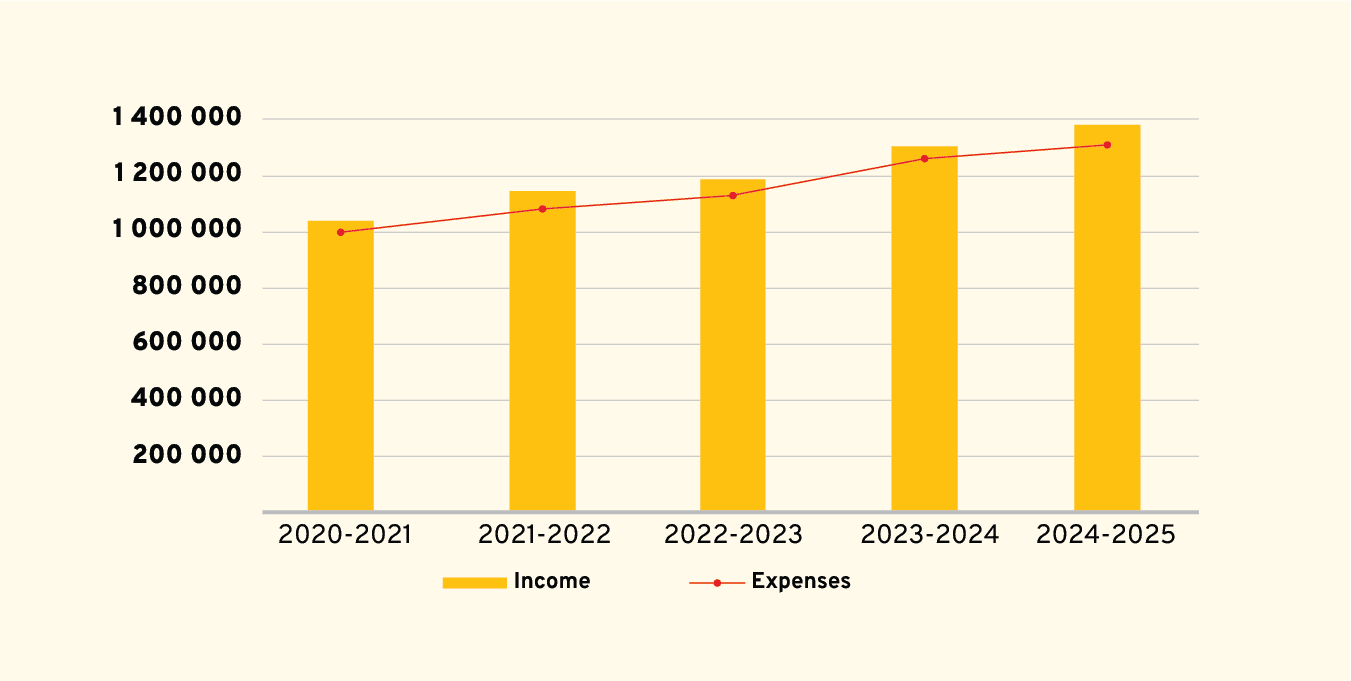
Investments (in thousands of dollars)
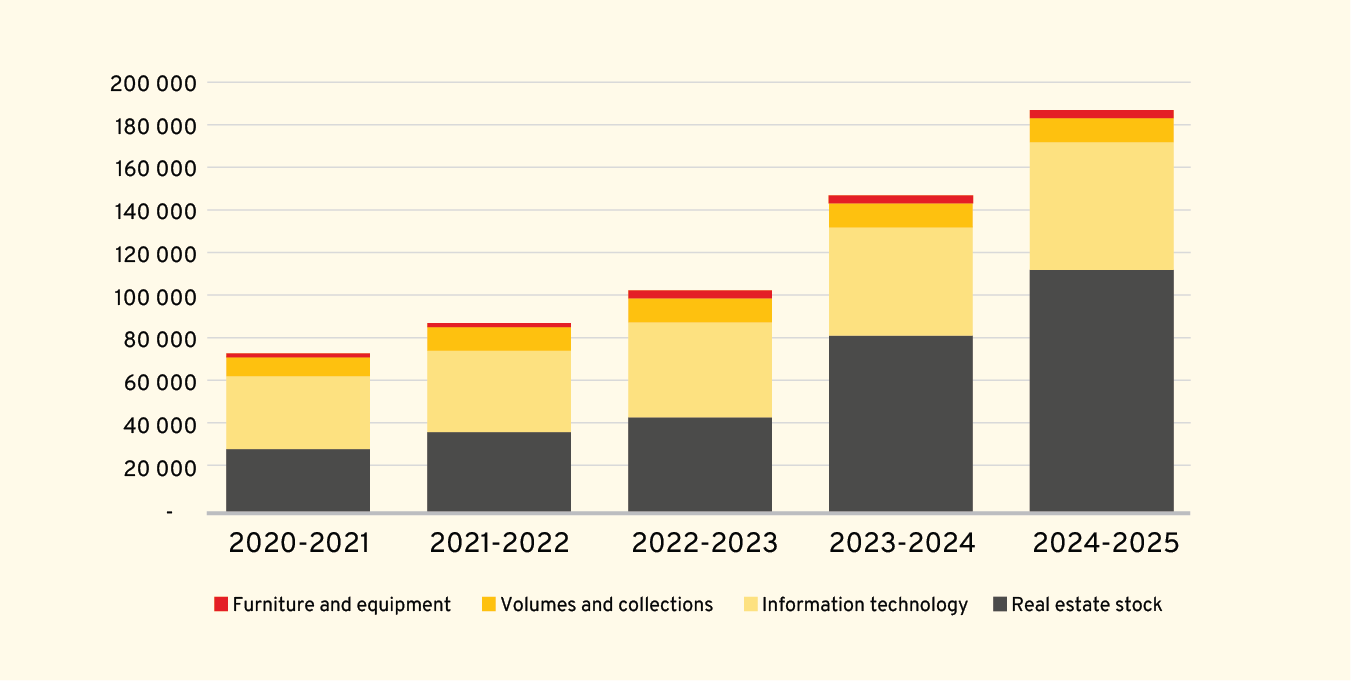
Benchmark indicators
Total student enrolment (academic year)
Université Laval is home to one of the largest student communities in Québec. A yearly enrolment count shows that nearly 56,000 students attended Université Laval in 2024–2025, the largest count over the past five years.
Source: Ministère de l’Enseignement supérieur (MES) student enrolment data management system (GDEU) report
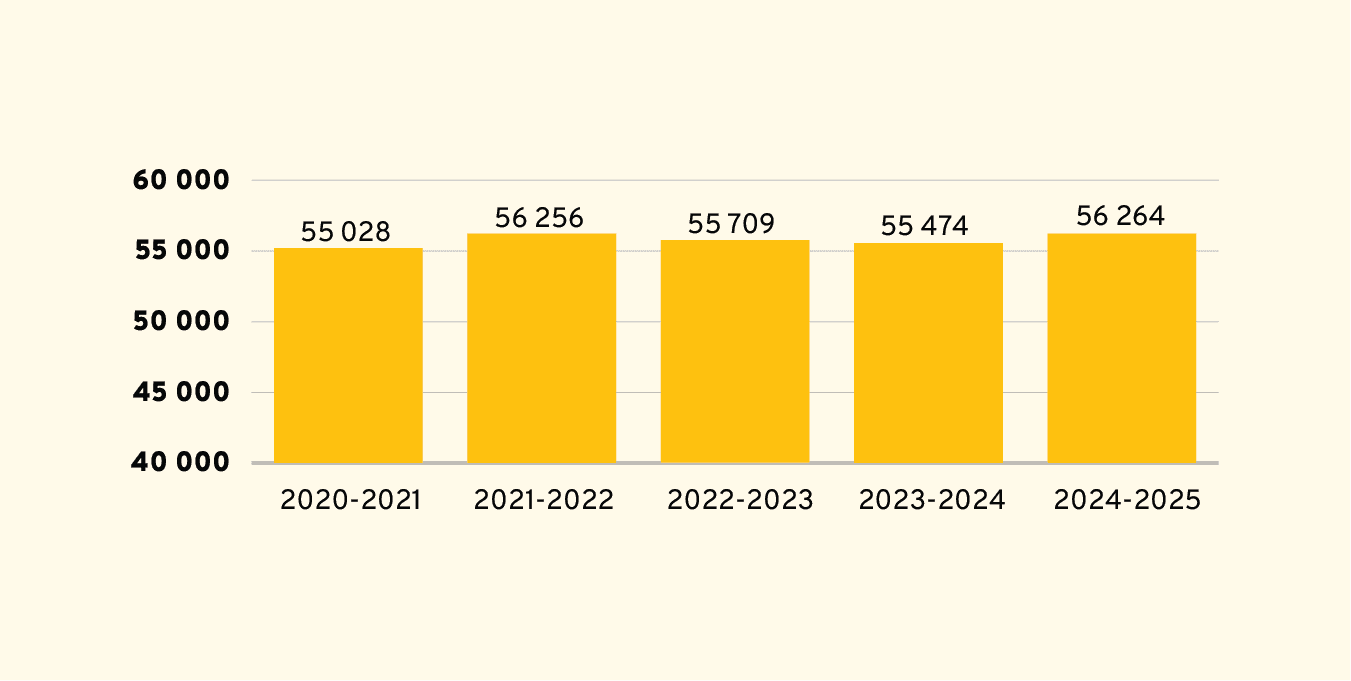
Number of degrees and certifications granted (university year)
Université Laval is among Canada’s leading university institutions in terms of the number of diplomas and certificates awarded.
Source: Institutional data
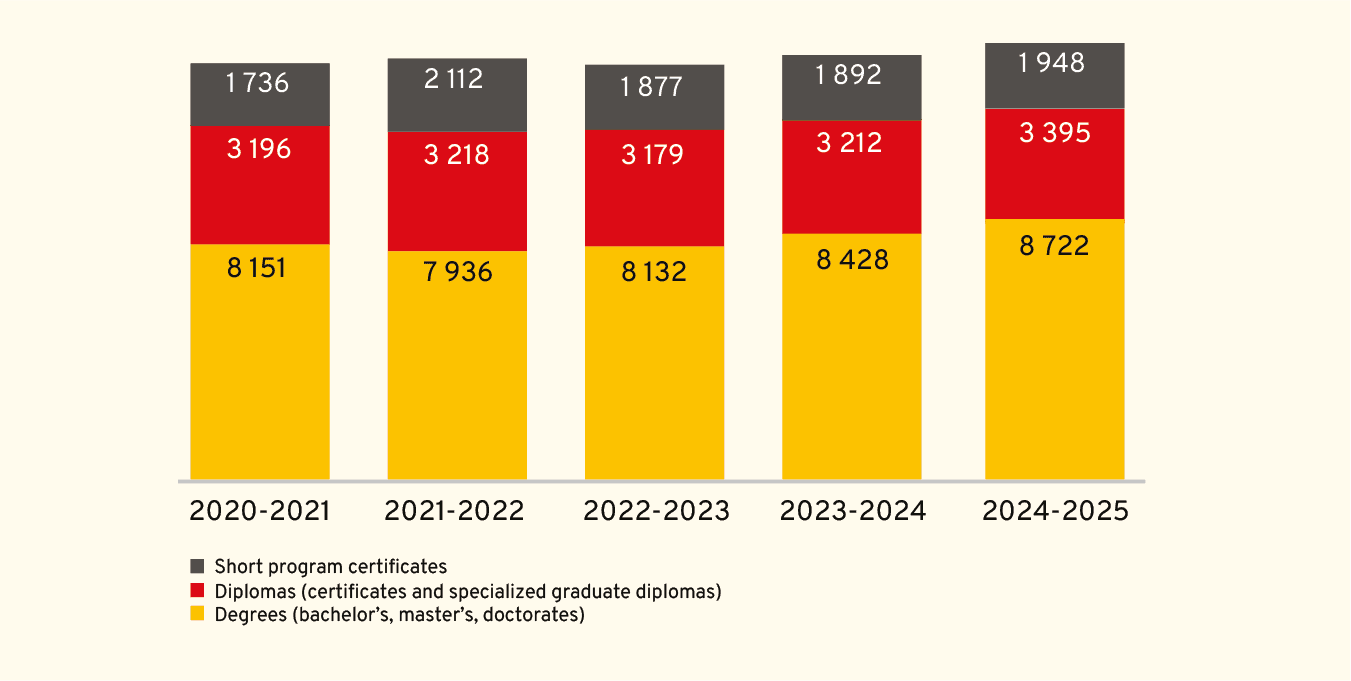
Proportion of course registrations by the course format (academic year)
The diversity of teaching options offered at Université Laval provides maximum flexibility for students.
Source: Institutional data
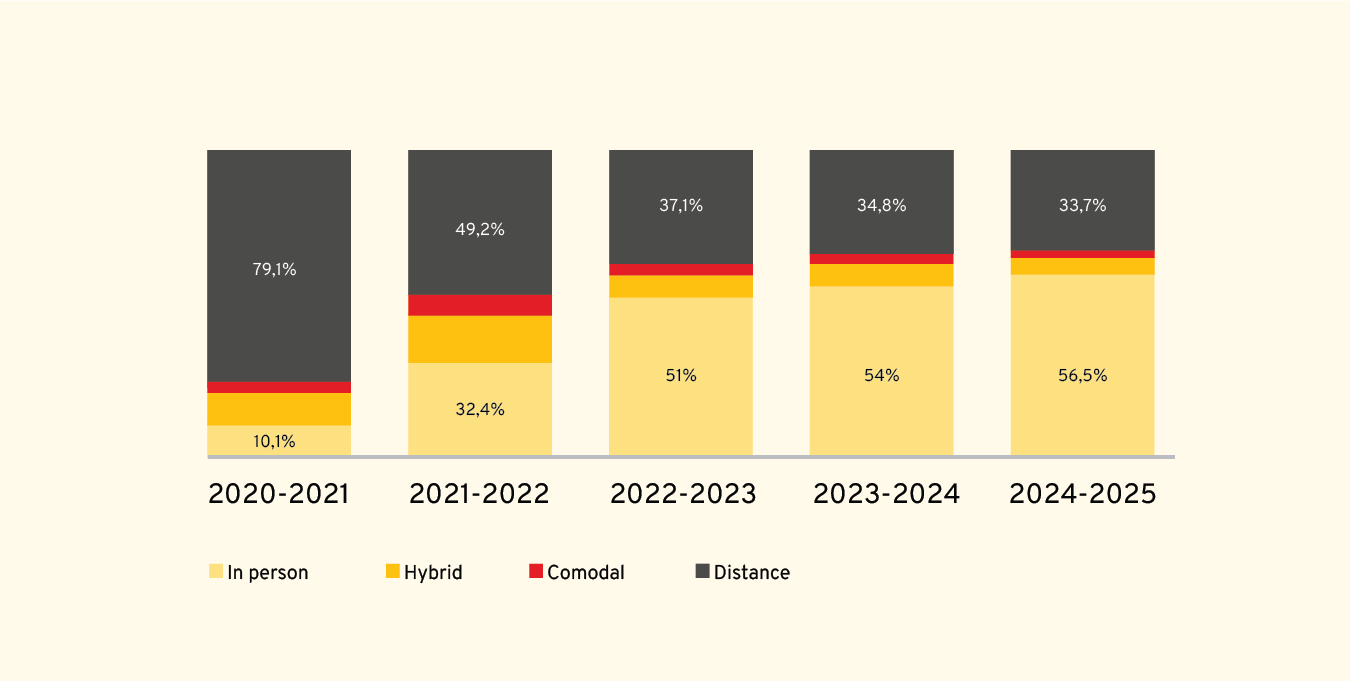
Proportion of students of international origin in the entire student body (university year)
Université Laval, like most Québec and Canadian universities, has seen its international student enrolment levels drop sharply. Various measures imposed by both levels of government have severely affected its attractiveness. Our international students come from about 125 countries, largely from France and French-speaking countries in Africa.
Source: Ministère de l’Enseignement supérieur (MES) student enrolment data management system (GDEU) report
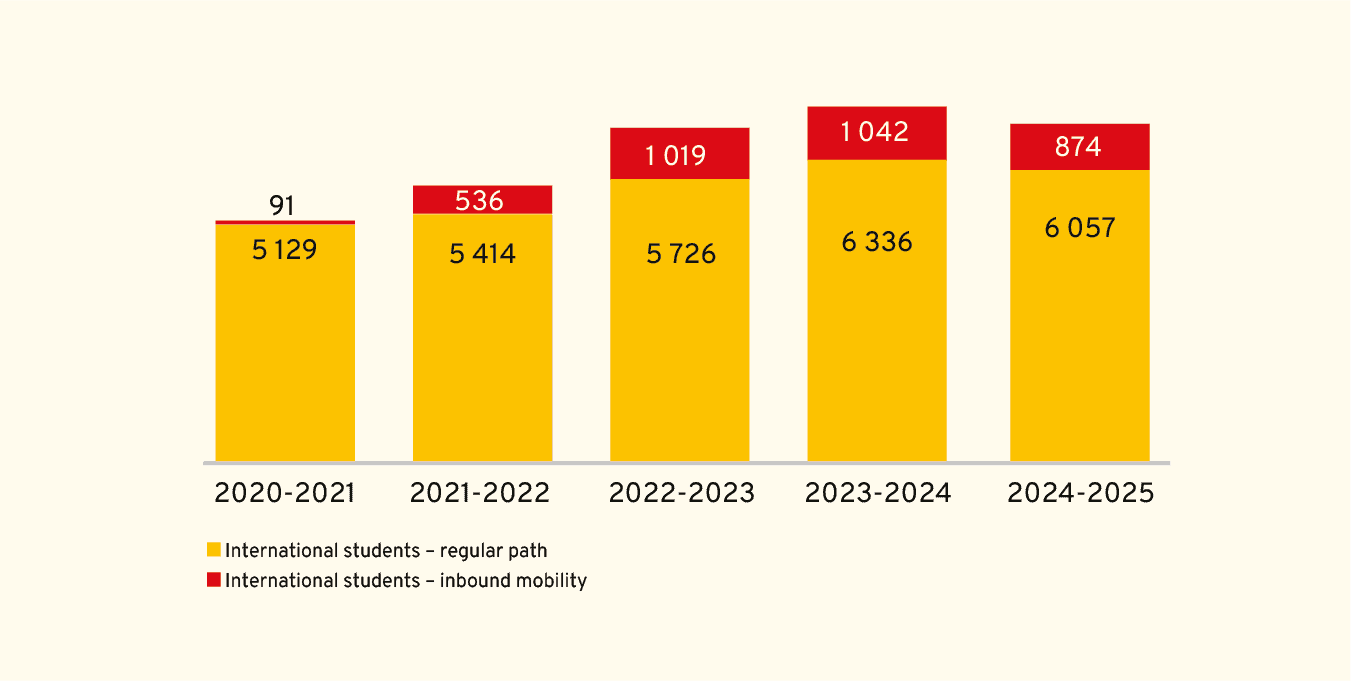
Proportion of international collborative research publications
More than 50% of research publications under the name of Université Laval professors are the result of collaboration with international researchers.
Source: Science and Technology Observatory (Clarivate Analytics - Web of Science)
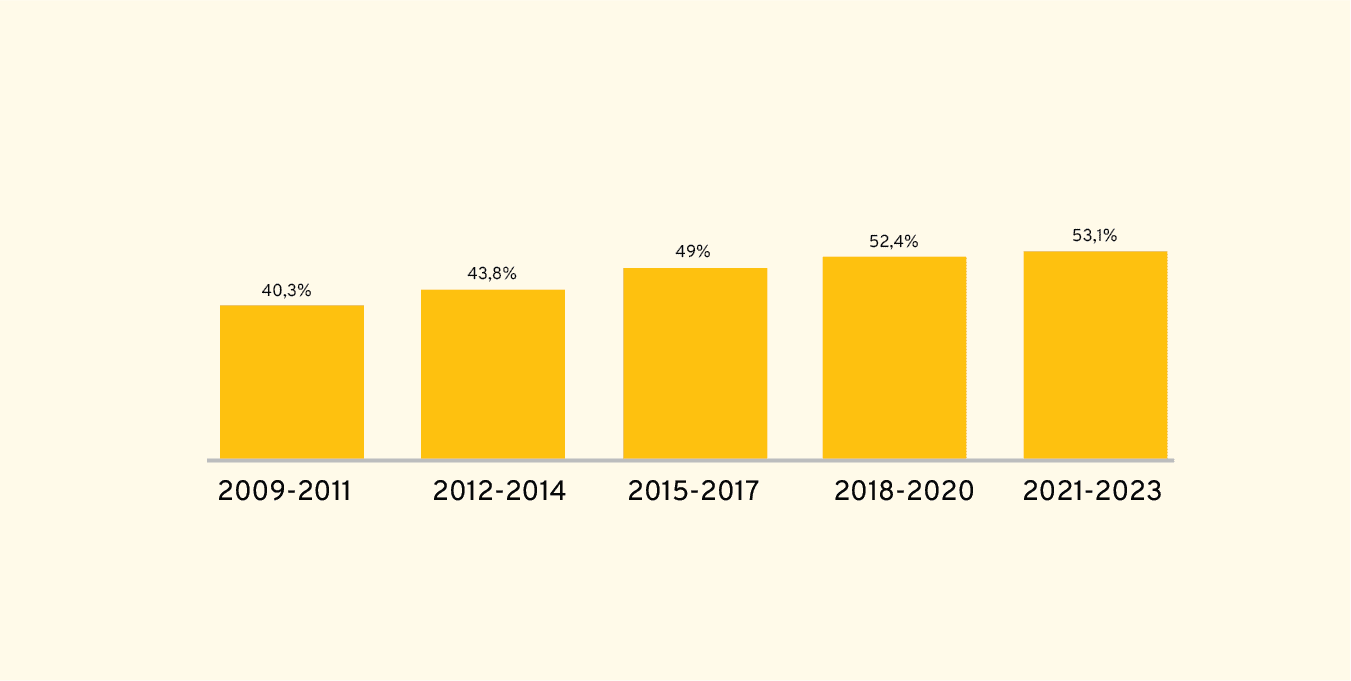
Research fund in millions of dollars
Université Laval is one of Canada's largest research universities. It ranks eighth among Canadian universities in terms of research revenue.
Source: Financial data reported annually by Université Laval for the Canadian Association of University Business Officers (CAUBO)
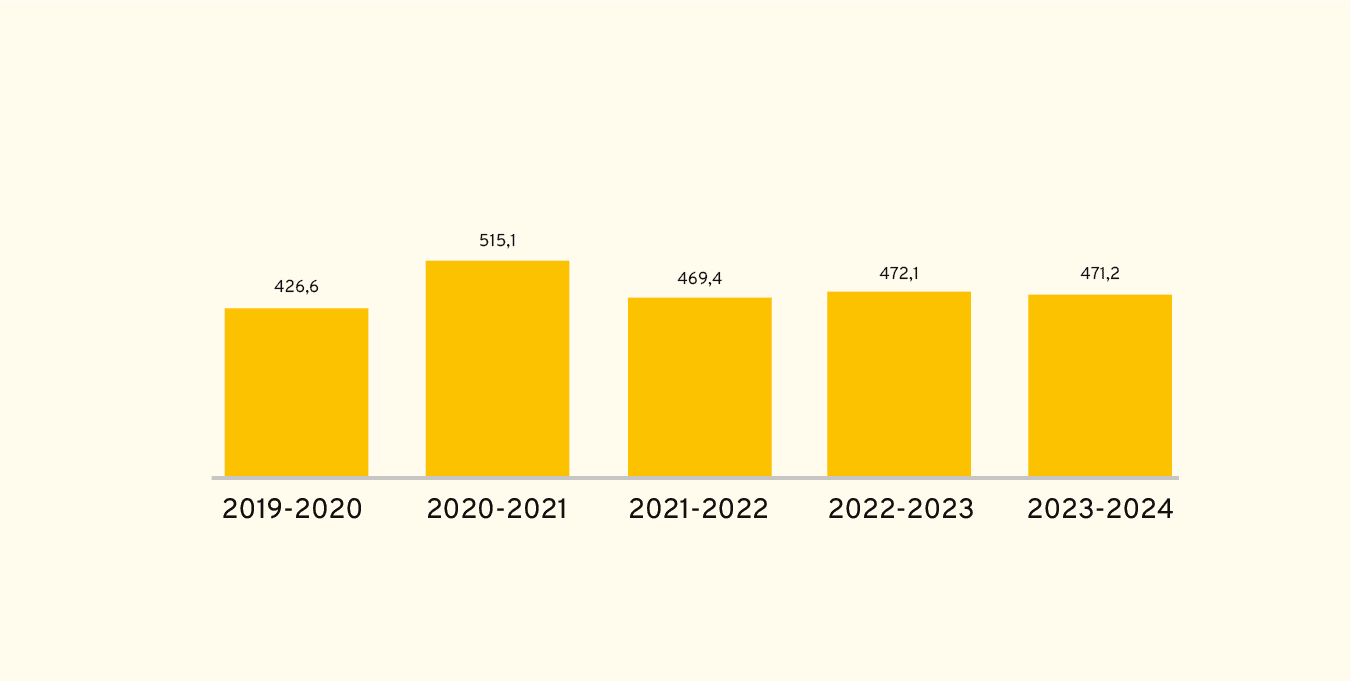
Student satisfaction index (%)
For many years, two North American surveys have confirmed that students’ overall satisfaction with the education offered at Université Laval is higher than average among students at Canadian universities.
Sources: NSSE (National Survey on Student Engagement) and CGPSS (Canadian Graduate and Professional Student Survey), conducted every three years.
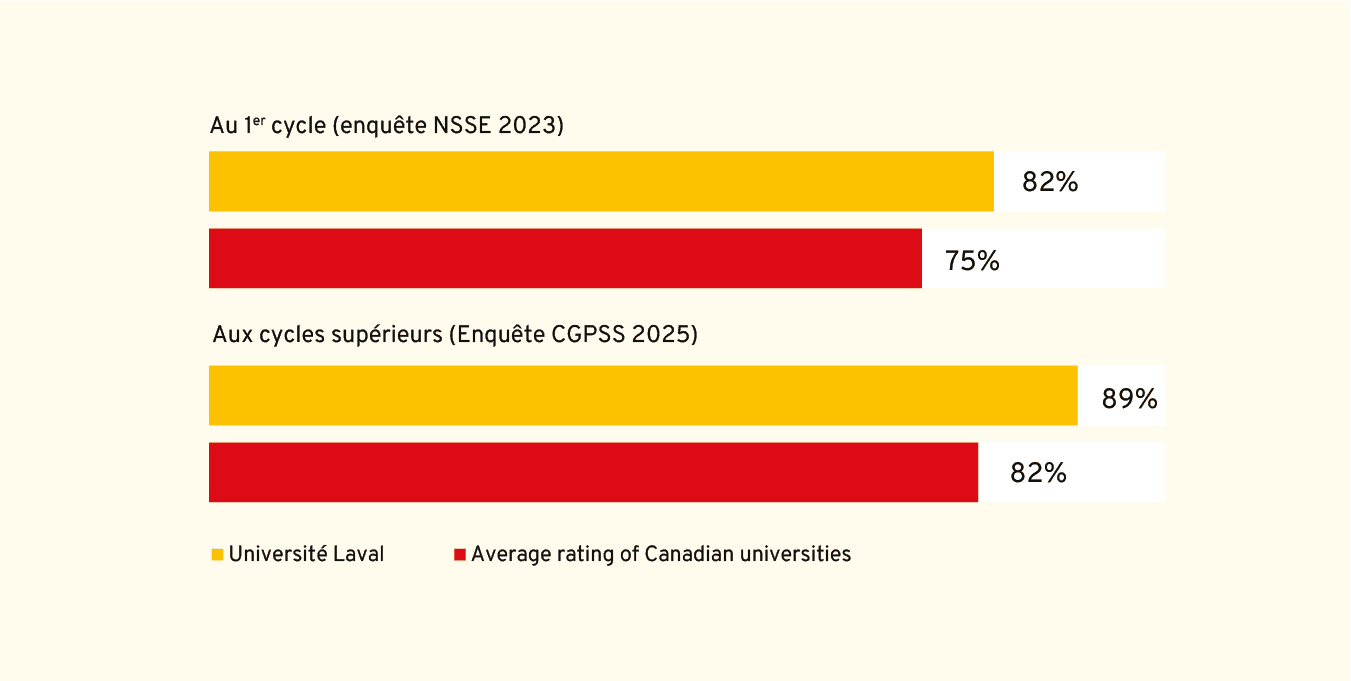
Direct greenhous gas budget (scope 1 and 2)
For the fourth consecutive year, Université Laval ranks among the top 2% of universities for its efforts related to the United Nations’ 17 Sustainable Development Goals (SDGs). Université Laval came in seventh in the 2025 Times Higher Education Impact Ranking for the SDG on climate action. The University also holds the STARS Platinum certification, which measures the sustainable development performance of higher education institutions.
Source: Institutional data
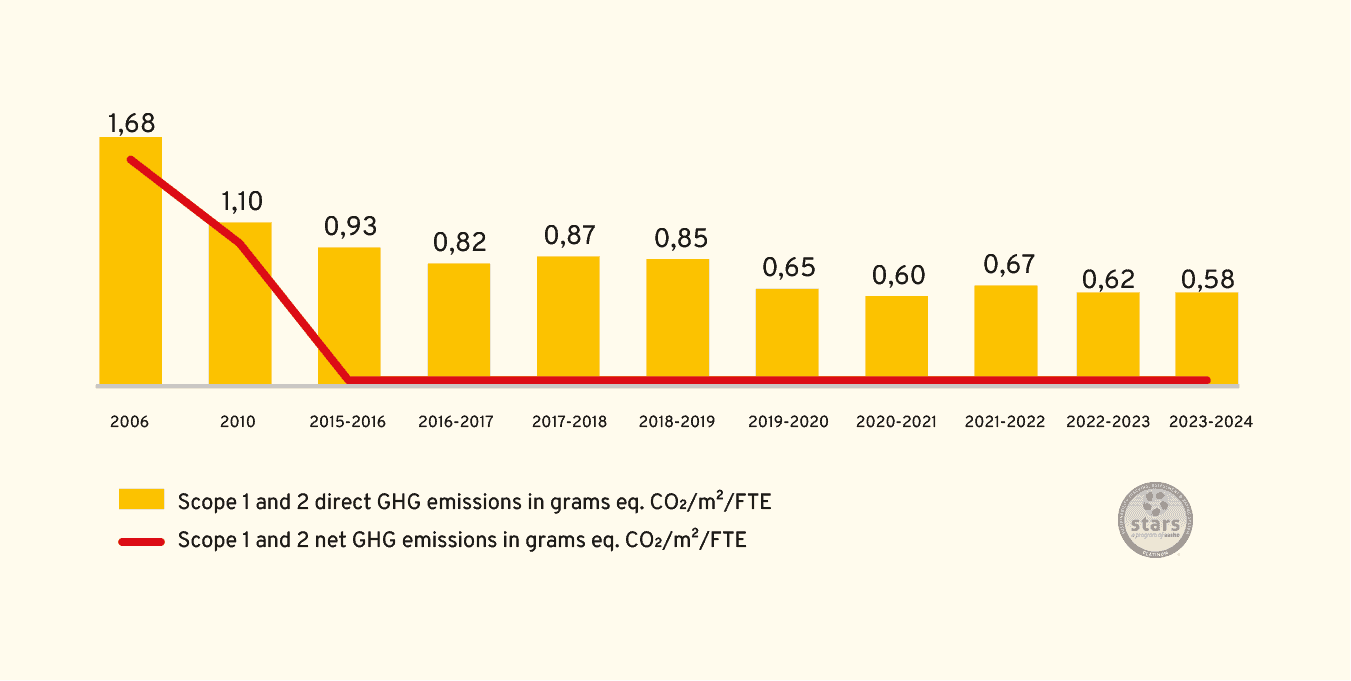
Governance
Members of the Board, the University Council, the management team and the standing committees are committed to supporting innovation and excellence in research and teaching. enriching the student experience and promoting our institution.
Board of Directors
The Board of Directors is an independent body that ensures the University is managed in exemplary fashion. It approves and supports the University's strategic priorities and gives major projects the green light.
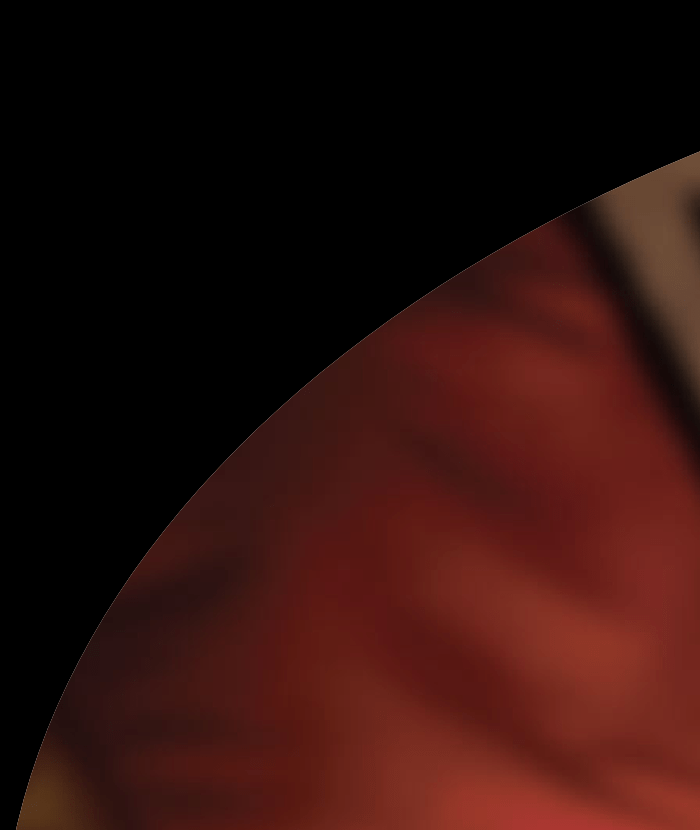
University Council (UC)
The UC has authority on academic issues such as grades, degrees, certificates, and programs. It is also responsible for various appointments, promotions, and awards at centres and institutes.
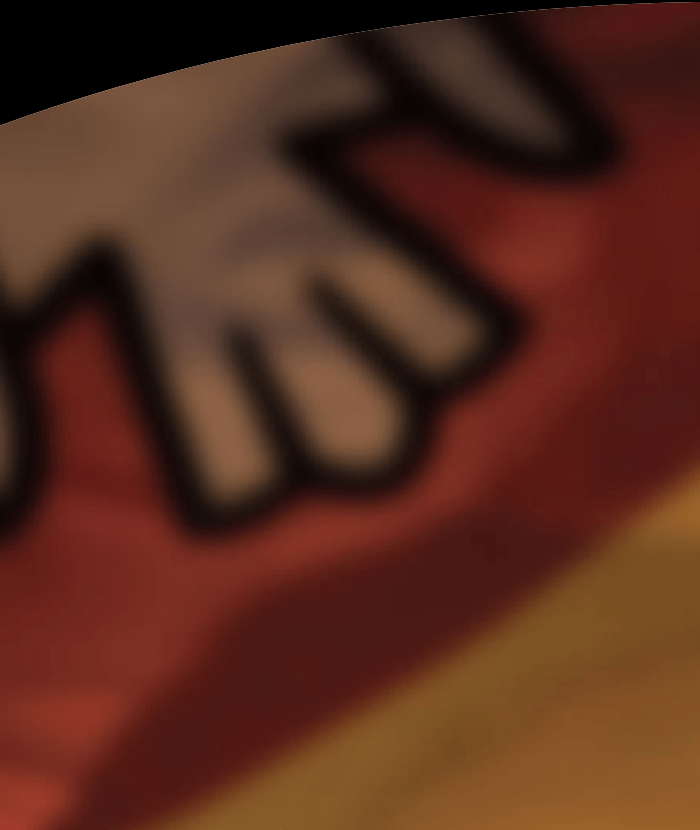
Management
Operating under the leadership of the rector, the University's management team is resolutely committed to fulfilling Université Laval's mission and strategic plan.
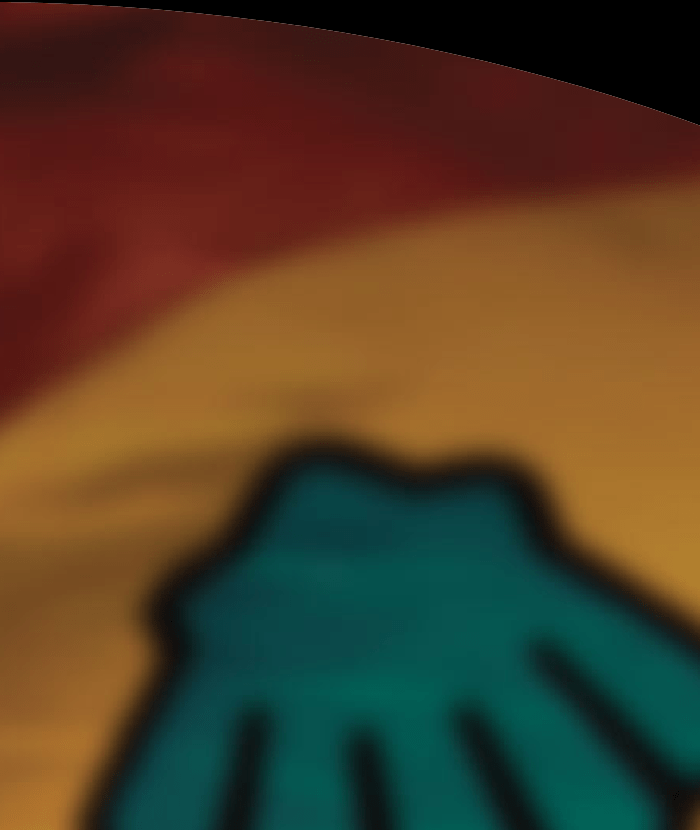
Permanent commissions
Université Laval's permanent commissions are mandated to develop, coordinate, evaluate, analyze and reflect on a wide range of issues.
